File: 1571308554711.jpg (329.07 KB, 1274x1700, 637:850, Nietzsche1882.jpg) ImgOps iqdb
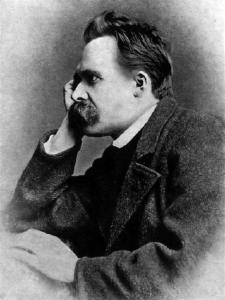
Finally finished Thus Spoke Zarathustra. Took me a year I think to get to end of it, this isn't the kind of book you can read normally, I had to stop to take breaks, sometimes I put it down for months. It isn't about comprehension, I understood what Nietzsche was saying in most cases. It is the lyrical form that annoyed me, lots of poems and songs in this one.
As for what I read: I agree and disagree. There are things which he hit spot on, like pity being harmful and focusing on this life on Earth instead of nonsensical tales about after lives. But the idea of eternal recurrence is just plain idiotic, I think it stems from Christianity still or other oriental religions, death is the end of it and that's all - no matter how you try to name it: Heaven, reincarnation or eternal recurrence it is just a pathetic hope that death isn't final. Actually, Nietzsche's thought process reminds me of Christianity in many ways, ironically: like praising suffering, not being content with hedonism, the idea that life is eternal, the Overman basically just replacing God etc.etc. Seems like a twisted and "negative form" of Christianity. Well, that is just my own two cents. I'm no expert on philosophy.
To me, the idea there is something after death is a lot more horrifing.
Going from one hellish existence to another with no hope of ever being free.
You are right, they are not theories:
Definition of theory
1 : a plausible or scientifically acceptable general principle or body of principles offered to explain phenomena
And what do you mean by "you people"?
I think this may be accurate. I had a look at Harold Bloom's list of the greatest literature of the western canon when he died the other day and Nietzsche was one of the few philosophers he included in it. Personally I get quite annoyed by the poetical and dialogue form of writing when applied to philosophy, it just seems to add a wholly unnecessary element in the form of characters and storylines that needlessly increase the length of the work and often obscures the meaning of the text behind tiring metaphors.
>>50395
Well, I'd say he is both a poet and a philosopher. Currently reading Beyond Good and Evil and it is much more tolerable - better - than Zarathustra. He can write like a sensible philosopher if he isn't trying to impress people with his literature and poetic skills.
>Personally I get quite annoyed by the poetical and dialogue form of writing when applied to philosophy, it just seems to add a wholly unnecessary element in the form of characters and storylines that needlessly increase the length of the work and often obscures the meaning of the text behind tiring metaphors.
Same here. If I wanted to read poetry then I would read poems, hymns, songs, etc.
File: 1571428170306.jpg (194.63 KB, 825x660, 5:4, books.jpg) ImgOps iqdb
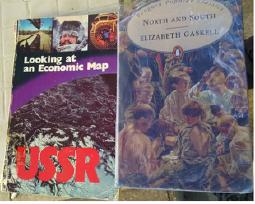
I haven't started reading the other one yet.
File: 1571428918529.jpg (168.9 KB, 887x1024, 887:1024, 1571423026279.jpg) ImgOps iqdb

File: 1571449818522.gif (4.95 MB, 480x270, 16:9, pain.gif) ImgOps iqdb

>when he died the other day
Fuck, I didn't even realize Bloom died until seeing this post. Made me do a double take.
I enjoyed the one I read, which was I think part four (covering his entire 20s, iirc). Love how quaint life seems in Norway in that era. Everything seems so laid back, and there's no real stressing about unemployment, ethnic tension, crime, social media etc.
File: 1571532667137.jpeg (57.94 KB, 342x549, 38:61, foucault.jpeg) ImgOps iqdb
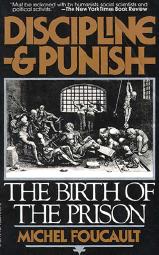
https://en.m.wikipedia.org/wiki/Panopticon
You did not understand the idea of eternal recurrence completely. It is not to say that there is any sort of afterlife that occurs over and over once we die, it is that we should live as though there is one
I understood it, I think. It is basically reincarnation but things always reincarnate in the same way. We live our lives over and over again.
>it is that we should live as though there is one
What do you base this on? From what I've gathered, Nietzsche really believed in eternal recurrence literally. He believed that the universe collapses and rebuilds itself the same way again and again.
>>50395
This.
There are -parts- of Beyond Good and Evil and the Geneology of Morals that present cogent, well-organized ideas, but it seems like most of Nietzsche's material is comprised of throwaway statements that I don't care for.
I specifically remember a part of Beyond Good and Evil where Nietzsche criticizes English philosophy, including Darwin and Mill, for being too thorough and rigorous. Somehow, Nietzsche thought that attention to detail was a sign of stupidity. This could explain why Nietzsche's own writing is a little bit sloppy by comparison. I'd prefer English philosophy any day.
yeah I read it many years ago and dont remember much. But that sounds like an early example of analytical vs continental style differences.
Ironically JS Mill labeled the continental style as "analytical" and the English style as empirical. Logic and analysis of ideas without facts seemed more the European thing. It was only with Russell later on that logic, math an analysis became a key part of English philosophy as well, even the name-giver to analytic philosophy.
Interesting that he wrote this in 1975. The world wide web has made the "panopticisation" of society so much worse. I'll have to get around to reading this one at some point.
>but it seems like most of Nietzsche's material is comprised of throwaway statements that I don't care for.
i'm not defending Nietzsche or anything, as i haven't really even read him, but aren't his aphorisms one of the things people like about him?
Foucault's interpretation of the panopticon has stuck with me for a long time, and when I finally watched Psycho Pass, I was kinda miffed that Urobuchi completely misunderstood the concept and fumbled it in the script
File: 1571947533335.jpg (99.13 KB, 800x551, 800:551, Dostoyevsky_in_prison.jpg) ImgOps iqdb

it was interesting but it's way too slow and he gives way too much details about literally everything from haircuts to the weather in russia.
Because of that even after reading a lot of pages i feel like i'm not making any progress at all
i'm gonna read some murakami before going back to part 2
If you think of buying Kindle, I definitely suggest buying a decent one.
Also, I am going to start reading The Stone Gods by Jeanette Winterson. It will be my first attempt to read a postmodern novel. I will share the details as I read.
I was reading that too and finished Book One a few days ago. The way he portrays the relationship he had with his father is probably one of the best I've seen in a book so far and really hits close to home at some parts.
File: 1572499977172-0.jpg (32.92 KB, 258x387, 2:3, BraveNewWorld_FirstEdition.jpg) ImgOps iqdb
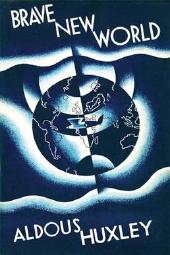
File: 1572499977172-1.jpg (82.98 KB, 287x441, 41:63, jc_editions_wildswans_uk_l….jpg) ImgOps iqdb

File: 1572499977172-2.jpg (66.71 KB, 304x475, 16:25, LafcadioHearn.jpg) ImgOps iqdb
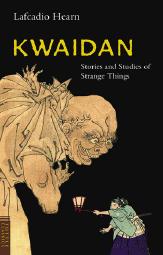
>Brave New World
Interesting dystopian novel. I liked it more than the others I've read (1984 and Fahrenheit 451) because it felt a little less 1-dimensional and more complex in themes - although I read the other 2 when I was much younger so maybe it just seems that way to me.
Got me thinking a lot about determinism (difference between the mostly 'random' conditioning - random in the sense that no one can really perfectly predict what will occur to someone as they go through life, although these experiences are still certainly conditioning them, vs. the precise and scientific conditioning in the book, where everyone is trained from birth to be placed in a certain caste and respond to certain things in certain ways), freedom ('freedom to be unhappy'), instant vs. delayed pleasure, a bunch of other stuff.
>Wild Swans
Autobiography of a succubus who grew up under Maoist China, following the lives of her, her mother, and her grandmother. I didn't know much about 20th century China so it was pretty interesting to me. Lot of dark shit though.
>Kwaidan
Small collection of Japanese ghost stories put together by a 19th century weaboo. All are fairly short and generally less scary than they are beautiful or sad, often involving tragedies between lovers or family. The guy was a pretty good writer which made it a pleasure to read. There's also some more philosophical stuff about insects he wrote at the end which was kind of neat.
i use a Nexus 7 2013, have read a dozen or two books thanks to it. i used to buy them from alibris.com in the 2000s and still have a decent amount, i kind of regret not doing it cause i would have a much cooler collection if i bought the ones i read on the android tablet, but i don't have money
I like the ability to look up words and details in searhc engines on the same device, so i prefer a full android over the paperwhite despite the paperwhite being superior for eyes
We were supposed to read all of those sci-fi novels in school, but I mostly didn't read 1984 and Farenheit 451 because they seemed dumb. Brave new world though interested me enough to at least read. Seem like much better social commentary although with the rise of authoritarianism recently I've been meaning to read the others.
I amassed a little over 1k books from the time I was in highschool all the way to my late 20s. I even bough books I could get for free online, which were most of them. I actually regret doing it to be honest. I could've saved the money and read through other means. Many of the books I got are on public domain. I got them because of what you just mentioned. There's a satisfaction, even pleasure in looking at a nice wall of books. Eventually I got tired of having them and put most of them on ebay, sold about a 100 or so and the rest I just donated. Couldn't appreciate having all that stuff gathering dust on my room anymore, I wanted the free space and I wanted a dust free enviroment. In the end I must have read less than half of them to completion, way less, maybe 250, 300 tops.
I would say don't start buying physical books. I know you probably won't listen because my dad also told me to stop getting all the books and I didn't listened. There are better ways to storage information nowadays. Books are a hassle in big numbers.
File: 1573122501193.jpg (48.41 KB, 435x640, 87:128, 56711.jpg) ImgOps iqdb
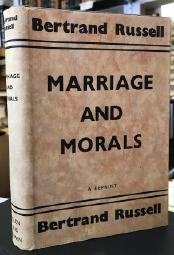
File: 1573351621079.jpg (51.17 KB, 329x500, 329:500, 0199537828.01.LZZZZZZZ.jpg) ImgOps iqdb

The constant prostrating to God every few paragraphs was repetitive and annoying (though probably necessary for the time and fitting given the purpose of the book) but the discussions on desire, good, memory, time and eternity, and creation were all great. Lots of beautiful metaphors as well.
Is this a sign that my vocabulary is poor or do you feel the same way?
He uses a lot of unnecessarily arcane words, so don't beat yourself up about not knowing them. I love the book, but I don't like his sometimes clunky, overwraught writing style. It really got in the way of the excellent content, especially the second and third time I read it.
File: 1573490450977.jpg (36.71 KB, 327x499, 327:499, 51JKMr756tL._SX325_BO1,204….jpg) ImgOps iqdb

The book is a combination of 2 works, one by Kamo no Chōmei, a monk who became a hermit and lived in a small hut for the rest of his life, and one by Yoshida Kenkō, also a Buddhist monk but not a recluse.
I went in expecting to relate with Chōmei's Hojoki, but actually found Kenkō's Essays in Idleness much more enjoyable. Covers a wide range of topics like Buddhist teachings, transience, aesthetics, and various anecdotes from history and personal experience. Many echo the style of the anecdotes in the Zhuangzi.
File: 1574131654224.jpg (14.6 KB, 260x400, 13:20, 9780141988511.jpg) ImgOps iqdb
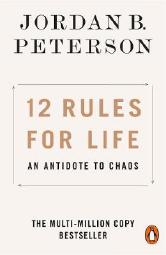
>uncomfortable truths
if Peterson's stuff were anything like as uncomfortable or truthful as it's made out to be, he wouldn't be enjoying the success he does.
I wonder if Huxley intended this utopian society to be perceived as evil and worse than what we have or let it be seen just as a" different" society; not worse or better. I don't have an answer for that, although I'd rather live in brave New world than here or in 1984.
Brave new world is like machines from matrix. Humanity created a "monster" and that monster is a more efficient civilisation than it's creators so it taken over the world.
File: 1574321070682.jpg (59.37 KB, 286x439, 286:439, narzundgold.jpg) ImgOps iqdb

Going to be giving this a re-read as it's been a few years. I found it to be an enthralling novel, even if the protagonist is so much unlike me. That's part of the appeal though, in a sense, it's a window into a life of a seeker who is a man unlike me, but in literary artistic form with dignity, and not some "chronicles of a norman who travels and meets succubi and stuff" serious of videos or "coming of age" sex comedy road trip film, or some other crasser modern version of this sort of thing. I found it as rewarding as such a thing could be, and fascinating; I like Hesse's writing. I would generally recommend it to anybody here without many crab/warlock predilections. They would no doubt become quite frustrated with it.
File: 1574446405694.jpg (25.04 KB, 293x500, 293:500, 9780394703909-us.jpg) ImgOps iqdb

It's a study on evolution and effect on society of what the author calls "technique". Despite the title of the book the focus isn't really on what we generally mean when we refer to "technology" - machines - but more on the procedures used to attain ends and the obsession with maximum efficiency.
He goes over way too much to even begin to do it justice in one post (even his investigation into the definition of technique takes up the better part of a chapter) but he raises a lot of good points - techniques being used to fix the problems originally created by other techniques, techniques intruding on leisure time (which, in technical society, becomes the only way a person can "truly" express themselves, since work is often mechanical, dull, and allows for little personal decision because technique essentially dictates the process), creation of a "mass man" through propaganda and advertising whose actions can easily be predicted and controlled, illusions of democracy, supposed ends that have no meaning (populating space).
Apparently Kaczynski was influenced by this book and Ellul in general. It's been a few years since I read his manifesto but I think this was better in every way since it's loaded with references to and arguments against other authors and thinkers and plenty of historical evidence.
Of course, I am only interested in collecting books that I see myself actually reading and which have some readability so I don't just read it once and then never touch it again.
As for buying books that you can read online, this goes for nearly every book nowadays, I actually prefer reading physical copies of books over reading them on a screen. When I do the latter, it tends to just hurt my eyes a lot. And I'm also a bit of an old-fashioned person and just don't like the digitization of books, a physical copy of knowledge that I can hold in my own hands has more value to me than a piece of data.
I was like you before but I agree with him now. I only buy used books for very cheap that are impossible to find in pdf epub or whatever. Can't afford to waste space, and I don't like the idea of leaving so much shit behind if something were to happen to me, or if I had to move.
File: 1575175332231.jpg (744.97 KB, 858x1389, 286:463, Erewhon_Cover.jpg) ImgOps iqdb
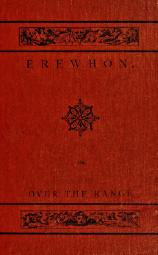
It's a novel about a fictional lost civilization that the narrator discovers when wandering inland on an unexplored island, where he works as a shepherd. The people of that civilization have various idiosyncrasies which are revealed as he interacts with the people and learns their history.
The events of the book itself weren't that interesting but the long descriptions of the culture and history were very impressive and often philosophically stimulating. Notable examples:
1. The people believe in punishing physical ailments with imprisonment and other severe punishments, while mental ones and moral deficiencies like crime are treated somewhat like remediable illnesses, with dedicated professionals called "straighteners" who reform people.
2. To support the above seemingly illogical beliefs, a mythology was created where, before birth, people are ethereal beings lacking deficiencies and are generally at peace. To be born into life, they have to sign a contract. Choosing birth is considered a great foolishness, and anyone who does so is subjected to long lectures on how asinine it is (because of having needs, and especially because the parents you're born to is largely subject to chance and so you might get stuck with incompetent ones).
3. Technology from the past two and half centuries or so was abolished. This decision came after a thinker wrote a treatise on the dangers technology would pose in the future if allowed to continue to progress. In it he essentially argues a sort of natural selection theory for machines and posits that, considering our origins from ancestors who were not conscious, it's not implausible that machines could also become conscious at some point in the future. He deals with various other details and counterarguments like reproduction to come to the conclusion that technology from the past several centuries must be abolished to prevent the subjection of mankind to slavery by machines.
Another thinker, the only one to respond to that argument, claims that technology only functions as appendages for humans (i.e. spades being extensions of a hand) and the only danger is that it might equalize the abilities of humans and make activities passionless.
The former thinker comes out on top, however, and the government decides on the destruction of recent technology, including things such as pocket watches.
4. The civilization went through a period of enforced vegetarianism after a theologian argued that, since it's wrong for man to kill his fellow man, it is also wrong for man to kill his fellow creatures. This led to laws forbidding meat consumption, except in cases where the animal died by natural causes. Unsurprisingly many people circumvented this in ridiculous ways, such as killing animals and claiming it was a suicide, or letting their dogs loose on them to avoid the blame for killing. Years later a philosopher argues that eating plants is also wrong because they are sentient (the sentience he argues seems to be based on "knowledge" rather than feeling; according to him a plant has innate knowledge of what it needs to do, i.e. growing towards sunlight, and so it can be considered sentient). This leads to everyone returning to eating meat since it's impossible to not sin in sustaining oneself.
The arguments here were kind of flimsy but the set of chapters was humorous.
5. The people believe in gods for human qualities and concepts like justice - somewhat similar to theories of Platonic forms but they assign gods to them and give them agency for punishing humans.
Considering this was published in 1872 I think it's impressive the author came up with some of these ideas, especially those regarding technology.
File: 1575241047225.jpg (72.97 KB, 500x749, 500:749, tumblr_luyy18ftWK1qzt1rbo1….jpg) ImgOps iqdb

so i finally finished reading kafka on the shore by haruki murakami and it was an amazing journey that i highly recommend
i can't really describe the events but it's like jojo's bizarre adventure but with a lot of cats
File: 1575290390944.jpg (21.72 KB, 314x500, 157:250, 41hp6y-fbQL.jpg) ImgOps iqdb
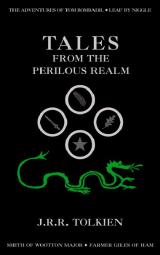
File: 1575468001987.png (1.89 MB, 1702x1523, 1702:1523, Plebcore.png) ImgOps iqdb

A lot of these are good though. Anyone looking for a list of information to avoid is probably a close minded fool. Just read whatever you want without seeking the approval of others for it.
File: 1575470824427.png (83.5 KB, 300x325, 12:13, 1574975846504.png) ImgOps iqdb

"Plebcore" just means that it's popular and accessible and hence, bad. Just because they're entry-tier, doesn't mean you should avoid them. Even an elitist that flaunts his taste in literature should still be familiar with these works.
Having said that, I think most fiction is just a waste of time. If you don't find a particular work compelling to read, then just don't. The point of fiction is the aesthetic appreciation and you don't get that by forcing yourself through it. Just read what you enjoy and/or helps you gain some useful knowledge, anything else is just normalfag social flaunting. It's just another identity to them, as if having a particular taste in literature makes you any more interesting than the rest of the apes.
I have seen some John Green podcasts or something, and he's awful, I can't imagine his books being any better.
He writes books primarily for young adults. His books aren't awful but anyone outside the teenage demographic won't find them particularly compelling to read, especially if they don't care about common themes like love and relationships i.e. an unpopular guy obsessing over a pretty popular succubus. They're not my cup of tea, but I wouldn't judge someone that enjoyed them, I simply look for different things.
I can say that pretty much all of these books are excellent in some way, but your enjoyment and appreciation of the work depends heavily on what you find compelling and interesting. Yes, even 50 shades of gray, as it did manage to satisfy a certain market of succubi that are into that kinda thing. Perhaps you don't care much about flipping the bean or your fedora, but Fight club really resonates with your homoerotic ideas about masculinity or Rand scratches your narcissistic idealization of capitalism itch. Who am I to judge you wizzie?
File: 1575485135424.jpg (21.75 KB, 400x337, 400:337, 1405546796935.jpg) ImgOps iqdb

File: 1575487978216-0.jpg (9.59 KB, 250x375, 2:3, 0465019773_b.jpg) ImgOps iqdb
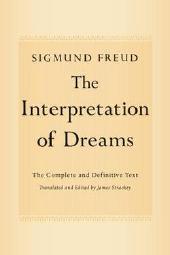
File: 1575487978216-1.jpg (24.08 KB, 400x600, 2:3, freuds-three-essays-and-th….jpg) ImgOps iqdb

File: 1575487978216-2.jpg (134.74 KB, 800x1200, 2:3, Civilization and Its Disco….jpg) ImgOps iqdb

>The Interpretation of Dreams
First thing I've read read from Freud and it was very fascinating. It's a fairly long in-depth analysis on dreams and their source which incorporates many of his own dreams and those of his past neurotic patients in investigating how dreams are formed. In addition to dreams it also gets into the subconscious and a proposed structure for the mind (subconscious, precociousness, conscious) and how certain repressed desires are manifested through dreams. Great read. In addition to being informative he was also a pretty good writer, at least judging from the translation, and I never felt bored despite the length and density of the text.
>Three Essays on the Theory of Sexuality
Read this after the above because I wanted to learn more about his thoughts. This was a series of short essays (less than a hundred pages) that dived deeper into how sexuality develops during childhood development (erogenous zones, latent period during childhood, etc.) and looks at supposed perversities like inversion (homosexuality) and examines their origins. Short but fairly informative.
>Civilization and Its Discontents
Last thing I'll be reading from Freud for now. This was an essay primarily focusing on the conflict between individual interests and civilization and culture. The observations in the first half or so are pretty obvious to most people (civilization holding power over the individual, individual having to suppress certain drives and being put into submission) but the latter half had interesting ideas relating to the sources of guilt, which he traced to a superego formed in part by the authority of civilization, and on the death drive, which he opposes to Eros (desire towards life and procreation) as a self-destructive instinct. Apparently he goes more into this in "Beyond the Pleasure Principle" so I might read that at some point in the future to learn more.
File: 1575488540355.jpg (99.41 KB, 933x960, 311:320, tükrük.jpg) ImgOps iqdb

File: 1575947754957-0.jpg (265.36 KB, 758x1170, 379:585, 9780140435719.jpg) ImgOps iqdb

File: 1575947754957-1.jpg (30.21 KB, 282x450, 47:75, 9780307833556.jpg) ImgOps iqdb
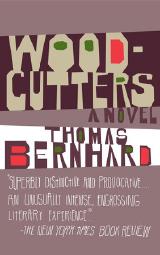
File: 1575947754957-2.jpg (35.03 KB, 400x633, 400:633, thomas-bernhard-2012-wittg….jpg) ImgOps iqdb

>Spinoza's Ethics
Philosophical treatise structured like a mathematical work that goes through a long series of propositions and proofs from an initial set of axioms in order to create a conception of god and an ethical system much different from religious ones of the time. Very dense in some parts (I and II in particular) but his concept of god is far more logical that anything I've seen before (although it's questionable whether his conception should even be called "god" anymore - apparently Schopenhauer had a similar criticism). Some of his later propositions on human emotions and the power of reason were more questionable but he still made interesting points on the superiority of striving for good (positive) rather than lambasting bad (negative, i.e. things likes chastity and humility which are not "positive" virtues but ones only arising from the suppression of emotions and condemnation of them in others as sins) and on eternity.
>Woodcutters
Old man sits at an artistic dinner party with past acquaintances and silently contemplates what a piece of shit everyone there but him is for over 100 pages.
Surprisingly it works, or at least it did for me. It's written as one big paragraph, similar to some of Beckett's works, but I found this much easier to read and more entertaining due to the biting cynicism of the narrator. Also the ending hit hard.
>Wittgenstein's Nephew
Short autobiographical work by the author of the above, detailing his friendship with a nephew of the philosopher, Ludwig Wittgenstein, who was mentally ill and constantly in and out of mental institutions. Funny at points but also sad because of how the guy was smart (the descriptions made him sound like an "otaku" of opera and music, very obsessed but also very knowledgeable and even brilliant), yet was fucked up by his illness and electroconvulsive therapy, and lived out his last years alone in a filthy apartment because all his friends (including the author) abandoned him.
File: 1576101400735.jpg (12.27 KB, 196x293, 196:293, camus.jpg) ImgOps iqdb
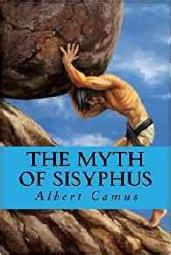
I picked it up today after finishing another book. Being 10 pages in, it starts like typical stuck up philosophy (see: OP's pic) but it seems to start getting down to earth about where I left off. I'm curious about what his definition of absurd was, and hopefully the title metaphor will start making sense after I'm done.
File: 1576244646834.png (17.15 KB, 447x236, 447:236, Existentialism.png) ImgOps iqdb

I ranked the authors, see attached. Bear in mind, its a pretty short books, so I didn't have much material to base this on. Maybe some of these authors just looked bad because of the particular excerpt that was chosen or the translation.
File: 1576246071856.jpg (361.52 KB, 1001x1500, 1001:1500, 2c5e01bac952336073eb402722….jpg) ImgOps iqdb
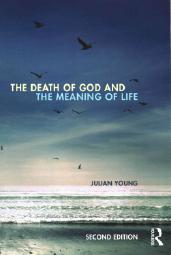
If you ever decide to revisit some of those thinkers please consider checking out this charming and well-written book by Julian Young:
What is the meaning of life? In today's secular, post-religious scientific world, this question has become a serious preoccupation. But it also has a long history: many major philosophers have thought deeply about it, as Julian Young so vividly illustrates in this thought-provoking second edition of The Death of God and the Meaning of Life.
Three new chapters explore Søren Kierkegaard’s attempts to preserve a Christian answer to the question of the meaning of life, Karl Marx's attempt to translate this answer into naturalistic and atheistic terms, and Sigmund Freud’s deep pessimism about the possibility of any version of such an answer. Part 1 presents an historical overview of philosophers from Plato to Marx who have believed in a meaning of life, either in some supposed ‘other’ world or in the future of this world. Part 2 assesses what happened when the traditional structures that give life meaning began to erode. With nothing to take their place, these structures gave way to the threat of nihilism, to the appearance that life is meaningless. Young looks at the responses to this threat in chapters on Nietzsche, Heidegger, Sartre, Camus, Foucault and Derrida.
Fully revised and updated throughout, this highly engaging exploration of fundamental issues will captivate anyone who’s ever asked themselves where life’s meaning (if there is one) really lies. It also makes a perfect historical introduction to philosophy, particularly to the continental tradition.
Sartre is literally just watered down Heidegger (and Hegel) no idea how you could rank him so highly and Heidegger so low. Perhaps the poorly chosen excerpts had something to do with that, however.
File: 1576451749742-0.jpg (18.97 KB, 300x475, 12:19, 30658.jpg) ImgOps iqdb
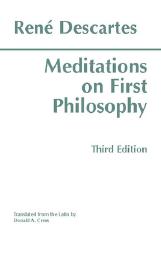
File: 1576451749742-1.jpg (40.42 KB, 326x500, 163:250, 51JZ6tMlg-L.jpg) ImgOps iqdb
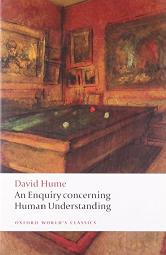
File: 1576451749742-2.jpg (31.67 KB, 220x339, 220:339, 220px-Capitalist_Realism_c….jpg) ImgOps iqdb
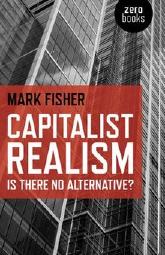
>Meditations
Short philosophical treatise looking into reason vs. the material and "proofs" of god. I didn't find his arguments very compelling although I wish I had read it before Spinoza since he seems to define a lot of the terms the latter uses more clearly.
>An Enquiry Concerning Human Understanding
Interesting look into skepticism and empiricism that calls into question the relation between cause and effect and supposed human reason that he redefines as just custom. The earlier parts were good but later ones felt a little weak IMO and full of holes or just ambiguous, especially when he talks about supposedly disproving miracles. Still a more enjoyable and stimulating read than the above though. I mainly read it in preparation for getting into Kant but it was good in its own right.
>Capitalist Realism
A short book looking briefly into the attitude that capitalism is the only viable system and the effects on culture. Much of it is a tl;dr of other thinkers with examples from and analysis of movies thrown in but it was good for a light introduction and made many points similar to things I've thought about (subsumption of supposed activism and anti-capitalist sentiments into the system itself, pervasive mental illnesses and drug use attributed to the individual rather than looking at the structure of the system, corporate optimism bullshit and gradual takeover of private life by work and corporate loyalty, Kafkaesque bureaucracies).
>>51262
Besides Ethics and Interpretation of Dreams most of them were pretty short. The latter 2 by Freud were just essays under 100 pages each. Berhard's books were a little longer but easier to read so I finished them in just a few sittings.
File: 1576615261858.jpg (45.26 KB, 353x500, 353:500, protest-inc.jpg) ImgOps iqdb
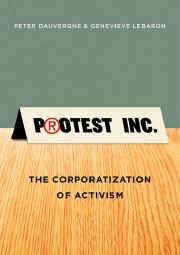
>(subsumption of supposed activism and anti-capitalist sentiments into the system itself, pervasive mental illnesses and drug use attributed to the individual rather than looking at the structure of the system, corporate optimism bullshit and gradual takeover of private life by work and corporate loyalty, Kafkaesque bureaucracies).
i've just read pic related, it might interest you. fairly short, to the point and easy to find online
also sort of related, going postal by mark ames. as a non yank I didn't know there were so many shootings in american workplaces since the 80s… but I can understand why it isn't talked about much around here
File: 1576979149394.jpg (33.03 KB, 640x480, 4:3, sddefault.jpg) ImgOps iqdb
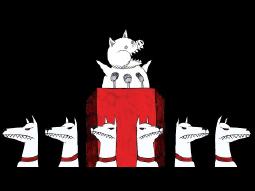
the book deserves all the praise it gets,so i don't really have anything new to add except that it solidified in me an idea that i always had:if you don't like the system don't try to change it because you can't and the results are not worth the effort,just embrace it while keeping your sanity and survive till you find a way to escape
One of the most depressing endings I have ever read. I love it, but ended up sad for a week after.
yeah same,in fact the only book i read that an had an ending as depressing is metamorphosis
File: 1577310582440.jpg (19.97 KB, 329x499, 329:499, 417RiaOykoL._SX327_BO1,204….jpg) ImgOps iqdb

i read it in french so nothing was lost in translation,it's just that i'm not ready for it
File: 1577316565086.jpg (53.46 KB, 697x507, 697:507, 3if75qlhv3u31.jpg) ImgOps iqdb

Looks like you may be interested in socialism. I'm an anarcho-communist myself and there is a lot of interesting socialist literature you would probably enjoy if you like anti-capitalist themes. If you go to the https://theanarchistlibrary.org/special/index there is a host of free books on socialism, as well as marxists.org and libcom, and many other sites. Those are just the most famous. I recommend https://theanarchistlibrary.org/library/the-anarchist-faq-editorial-collective-an-anarchist-faq this to learn about the libertarian trend of socialism, which is in my view the only correct current, this https://theanarchistlibrary.org/library/petr-kropotkin-the-conquest-of-bread a foundational text on libertarian communis political theory, https://theanarchistlibrary.org/library/michail-bakunin-what-is-authority which is more political philosophy on why the state and capital is illegitimate, https://theanarchistlibrary.org/library/pierre-joseph-proudhon-what-is-property-an-inquiry-into-the-principle-of-right-and-of-governmen this attacking all the justifications for capitalism and property rights, and max stirner https://theanarchistlibrary.org/library/max-stirner-the-ego-and-his-own who is an individualist anarchist (he is an anarchist before the name was coined four years before he wrote this book), and lastly https://theanarchistlibrary.org/library/murray-bookchin-the-ecology-of-freedom.pdf murray and you might enjoy some anarcho-primitivist literature as well https://libcom.org/files/Against%20Civilization%20-%20John%20Zerzan.pdf . All of this is very academic and may be hard to follow without an educational background in philosophy, but you may be able to understand a lot of it and it should be enjoyable if you are an anti-capitalist. I thought everyone here was a fascist or a liberal but I suppose not seeing some of the books being read here.
File: 1577393746185.jpg (39.06 KB, 285x475, 3:5, 115976.jpg) ImgOps iqdb

Edward Abbey's Desert Solitaire.
Usually I'm not fond of that type of mechanism for stories but Henry James is so good at describing people's reflections I had a lot of fun with it. Fairly short too, so it's not taxing at all. Now if you want my opinion over the matter if this is a ghost story or just a lady going crazy, I'm inclined to say it is a ghost story and the whole thing did happened.
Also, forgot to add this has one of the best prologues I've ever read, very interesting and sets you in the mood right the away.
I was reading reviews for this afterwards on goodreads and a lot of people seemed to have trouble with the wording and the long sentences. I didn't even notice how long the sentences were and I think it's because I actually read this along with an audiobook and the narrator is really fucking good in it. It really added to the whole experience. It's the first time I do this and I had so much fun I might do it for other books as well. I embedded in case anyone is interested. The actual text I downloaded from Gutenberg project.
File: 1577804312892.jpg (32.78 KB, 265x396, 265:396, NHKlightnovel.JPG) ImgOps iqdb

http://93.174.95.29/_ads/87FBC5AD926529369F7387A680411AB2
Took me like 10 seconds to find it. Try libgen and #bookz when looking for books.
Don't purchase paper books.
I have over a decade experience of collecting, reading and sharing space with physical books and after carefully weighting pros and cons of going for the digital format, I can tell you, don't make the same mistake I've made.
You can read my full post about it here >>50657.
Yeah it doesn't tire my eyes out at all, even after all day reading. In fact due to the font being larger or average, it's even less tiring than reading on paper.
I don't like reading paper books, cover to cover. But I've accumulated quite a collection just since 2016. But people like collecting stuff, be it toys or stamps or memoribilia or paintings. And I feel like that stuff you stare at it once, and you take it all in already. while a book has hundreds of pages of content.
So yeah I dont read it cover2cover, but if I'm going to own and collect anything, for me, books make the best possessions. And it just easier to skim at leisure than ebooks.
The few exemptions is when I pick up a cheap campy book at the dollar store or something to keep me amused during a trip or storm when the power might go out. Usually I give it to someone or donate it after I finished it.
Also, the public libary is your friend if you like the physical feel and look of books. Let them store and maintain them for you.
File: 1577840816003-0.jpg (11.14 KB, 333x500, 333:500, 31vA14vAI7L.jpg) ImgOps iqdb
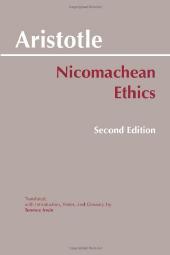
File: 1577840816003-1.jpg (371.87 KB, 510x715, 102:143, 9781844670536-frontcover-a….jpg) ImgOps iqdb
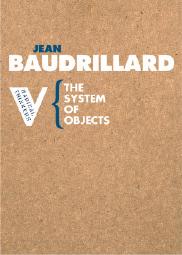
File: 1577840816003-2.jpg (137.25 KB, 647x1000, 647:1000, Tractatus-Logico-Philosoph….jpg) ImgOps iqdb
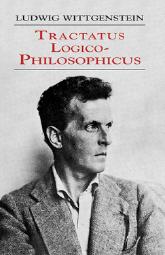
>Nicomachean Ethics
Had some interesting parts (defining happiness, looking at pleasure, defining different kinds of friendships). A lot of the stuff defining extremes and means of virtue was redundant. Will probably watch some supplementary lectures since it was pretty dense in parts.
>The System of Objects
A look at objects and signs, their relations and values, and consumption. Hard to sum up in a paragraph but it deals with various things such as the evolution of furniture layouts, the effects of advertising, treating products as a way of defining oneself despite the irony of many other people doing the exact same thing with those products, and other topics. Some of it needs to be taken with a grain of salt IMO and perhaps it's a little dated, but a lot of what he writes is still pretty applicable today.
>Tractatus Logico-Philosophicus
Came to this from reading Philosophical Investigations and Philosophical Grammar so it was interesting to see his earlier views. While a lot of it is contradicted by his later writings the way of viewing the world he puts forth is pretty fascinating and it makes some of his later views where he was criticizing what he wrote earlier clearer.
Genuinely enjoyed (and laughed aloud) at this novel when I first read it aged 22 or so. Really simply but effective use of language, and great humour. Manages to capture the hiki mindset in a way that doesn't seem as though it's done so to squeeze bucks out of readers.
Any advice for how to properly understand the system of objects? I tried to read it 2 or so years ago but I found the style too abstruse, I'm interested in Baurdrillard but fear I'll never be able to get him
>John Forbes Nash Jr. (June 13, 1928 – May 23, 2015) was an American mathematician who made fundamental contributions to game theory, differential geometry, and the study of partial differential equations. Nash's work has provided insight into the factors that govern chance and decision-making inside complex systems found in everyday life.
>In 1959, Nash began showing clear signs of mental illness, and spent several years at psychiatric hospitals being treated for paranoid schizophrenia. After 1970, his condition slowly improved, allowing him to return to academic work by the mid-1980s. His struggles with his illness and his recovery became the basis for Sylvia Nasar's biography, A Beautiful Mind, as well as a film of the same name starring Russell Crowe as Nash.
https://en.wikipedia.org/wiki/John_Forbes_Nash_Jr.
https://www.academia.edu/33099050/Did_the_Nobel_Prize_Winner_John_Nash_have_Asperger_s_syndrome_and_Schizophrenia
If you don't understand anything he's talking about or the bigger picture I'd recommend reading up briefly on structuralism, semiotics, and theories of value. Baudrillard was basically applying them to everyday life and introducing sign value, which he argues has become just as or more important than use value. He also drops concepts from psychoanalysis a lot (castration anxiety in relation to pets, death drive in relation to people taking pleasure in machine breakdowns, etc.) so reading up on Freud might help as well. Veblen's idea of conspicuous consumption would also be useful to look into.
The point of the while first section of the book analyzing interior design was, IMO, his way of showing how the value of objects is no longer dependent as much on individual functions and values but on how they "mesh" together. The value can only be understood within the entire system of objects, as related to the "atmosphere" created by interior design. The second part where looks more at automobiles, model/series, etc. is essentially applying this to the larger picture.
Ironically some of his remarks in the conclusion are, in regards to this, the clearest in the entire book.
>Consumption is not a material practice, nor is it a phenomenology of 'affluence'. It is not defined by the nourishment we take in, nor by the clothes we clothe ourselves with, nor by the car we use, nor by the oral and visual matter of the images and messages we receive. It is defined, rather, by the organization of all these things into a signifying fabric: consumption is the virtual totality of all objects and messages ready-constituted as a more or less coherent discourse. If it has any meaning at all, consumption means an activity consisting of the systematic manipulation of signs.
>Traditional symbolic objects (tools, furniture, the house itself) were the mediators of a real relationship or a directly experienced situation, and their substance and form bore the clear imprint of the conscious or unconscious dynamic of that relationship. They were thus not arbitrary. Although they were bound by connotations - pregnant, freighted with connotations - they remained living objects on account of their inward and transitive orientation with respect to human actions, whether collective or individual. Such objects are not consumed. To become an object of consumption, an object must first become a sign. That is to say: it must become external, in a sense, to a relationship that it now merely signifies. It is thus arbitrary - and not inconsistent with that concrete relationship: it derives its consistency, and hence its meaning, from an abstract and systematic relationship to all other sign-objects. Only in this context can it be 'personalized', can it become part of a series, and so on; only thus can it be consumed, never in its materiality, but in its difference.
If you're just having trouble with understanding individual sentences/paragraphs due to his style of writing I guess I'd recommend taking it slower and maybe even rereading multiple times in order to get used to it. I came to this after reading Simulacra and Simulation and one of Foucault's books so I guess it wasn't as difficult for me.
I just found out about this book and I can't find it anywhere ( tried libgen and irc )
https://www.amazon.com/Hermetica-Hermeticum-Asclepius-Translation-Introduction/dp/0521425433/ref=sr_1_2?keywords=hermetica&qid=1578154305&sr=8-2
Does anyone have format of this that I can put on my shitty calibre ?
Thanks friend. Do you know if this would be easy to OCR ?
I wanna read it on a kindle I found.
No idea, I didn't download the file and OCRing a file of that size, assuming it's possible, will take quite some time with software I don't have. Sorry I'm not of much help.
File: 1578424843556.png (51.75 KB, 575x685, 115:137, 3b.png) ImgOps iqdb

I read that book a few months ago. It was pretty cool, though the science starts to become really weird later on. I haven't picked up the next one yet but I would like to some day.
>Kwaidan
If you're looking for something similar to this you should check out "Strange Tales from a Chinese Studio" by Pu Songling. While the stories were written for a highly educated Chinese elite, many of the stories are quite short (one paragraph).
>>50657
True; the dust is terrible. I get my books from the library and only buy them if I really liked them.
>>50908
What would be an example of an uncomfortable truth in Peterson's book?
>>51123
>Plebcore
>American Psycho
>1984
>Catcher in the Rye
>>51449
Edward Abbey's work, aside from the sex, is quite wizardly. I read "The Monkey Wrench Gang" a while ago. The book is wizard friendly; Picaresque hooliganism, terrorism, hatred of society, &CT.
File: 1578617682712.jpg (10.71 KB, 195x293, 195:293, perennial_philosophy.jpg) ImgOps iqdb
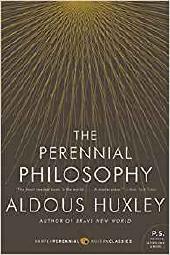
>The twentieth century is, among other things, the Age of Noise. Physical noise, mental noise and noise of desire - we hold history's record for all of them. And no wonder; for all the resources of our almost miraculous technology have been thrown into the current assault against silence. That most popular and influential of all recent inventions, the radio, is nothing but a conduit through which pre-fabricated din can flow into our homes And this din goes far deeper, of course, than the ear-drums. It penetrates the mind, filling it with a babel of distractions - news items, mutually irrelevant bits of information, blasts of corybantic or sentimental music, continually repeated doses of drama that bring no catharsis, but merely crate a craving for daily or even hourly emotional enemas. And where, as in most countries, the broadcasting stations support themselves by selling time to advertisers, the noise is carried from the ears, through the realms of fantasy, knowledge and feeling to the ego's central core of wish and desire. Spoken or printed, broadcast over the ether or on wood-pulp, all advertising copy has but one purpose - to prevent the will from ever achieving silence. Desirelessness is the condition of deliverance and illumination. The condition of an expanding and technologically progressive system of mass-production is universal craving. Advertising is the organized effort to extend and intensify craving - to extend and intensify, that is to say, the workings of that force, which (as all the saints and teachers or all the higher religions have always taught) is the principal cause of suffering and wrong-doing and the greatest obstacle between the human soul and its divine Ground.
If Huxley said this about radio in 1947, I wonder what he would say about the modern internet, social media, and smartphones.
File: 1578620091612.jpg (51.95 KB, 510x680, 3:4, frankenstein-mary-shelley-….jpg) ImgOps iqdb

I guess I just read the greatest antinatalist novel ever written. Never saw a character in a novel so pissed to have been born than the creature in Frankenstein. He's pretty much complaining about it every waking moment.
File: 1578634361715.jpg (25.87 KB, 510x295, 102:59, Trakl.jpg) ImgOps iqdb

His last poem:
"At evening the autumnal forests resound
With deadly weapons, the golden plains
And blue lakes, above them the sun
Rolls more darkly by; night enfolds
The dying warriors, the wild lament
Of their broken mouths.
But in the grassy vale the spilled blood,
Red clouds in which an angry god lives,
Gathers softly, lunar coldness;
All roads lead to black decay.
Beneath the golden boughs of night and stars
The sister’s shadow reels through the silent grove
To greet the ghosts of heroes, their bleeding heads;
And the dark flutes of autumn sound softly in the reeds.
O prouder sorrow! you brazen altars
Today an immense anguish feeds the mind’s hot flame,
The unborn descendants."
File: 1578667667742.jpg (8.61 KB, 250x298, 125:149, Mitchell Heisman.jpg) ImgOps iqdb

Has anyone else here read Mitchell Heisman's suicide note?
It's over 1900 pages long. I've read the introduction, the conclusion, and skimmed through the rest. This was a couple of years ago so I don't remember the specifics, but it's an interesting work on existential nihilism that can get academic and repetitive at times. Some of his arguments are that Christianity and secular-democracy are anti-biological memes that work against the selfish genes, and that scientific objectivity is self-contradictory because the scientist must arbitrarily value objectivity. I would put it in the same category as Ligotti's TCATHR, Ray Brassier's Nihil Unbound, or the literature inspired by antinatalism.
Only read the first one or two chapters, though intend to read the rest some day. I found his argument about our bias against death to be fascinating. I have studied a lot about animal ethics in the past, and the philosophical approach to extending ethical consideration to non-human animals, including the removal of bias as a valid reason to harm animals in a way you wouldn't harm people. The fact he argues a similar thing and says that our bias against death is unjust made me laugh. It's like he's treating death as something unfairly oppressed and stigmatised "just because". Maybe there's a gaping hole in his logic that I missed, but I found his argument very original and well articulated.
Thank you for this, I'm going to try and remember to check this book out.
If you're interested in noise, I definitely recommend a book called Discord by Mike Goldsmith. It's about the history of noise, including the first anti-noise pollution laws passed passed IIRC in Roman times by Caesar, and then on to more modern times. There's an interesting bit about London in the 19th century (IIRC) and how beggars would often go around the wealthy streets playing terrible music on instruments they couldn't play, forcing the wealthy folk to pay them to move on. One man refused to give them any money and people found his anger so hilarious that more and more people started causing intense noise around his home just to push him to anger. It's a great read.
I read it thoroughly about a year ago when I was NEET. It's not especially long even though it's 1905 pages: pages are short, his language is very clear and ideas are repeated, and the note is essentially six books connected. I've wanted to write something of a foreword to it but I don't know what I'd do with it other than keep it for personal satisfaction.
His book is, in summary, a sociobiological analysis/application of Nietzsche's big ideas like slave morality and the coming of nihilism (he calls Nietzsche his mentor at the end of the book). There are some weird logical fallacies like at the beginning (proving me wrong proves me right), but even then it still relates to his nihilism problem. He is sort of an accelerationist (though he wouldn't say so and has no ties to that school of thought) and claims that technological evolution is essentially the purpose of humanity and the completion of the nihilism project will be the end of humans in favor of rational technology, and gives the example of a smarter than human AI fulfilling that project. The reason the book is so long then is that he explains history (from the Exodus to the Norman Conquest to the American Civil War to Nazi Germany/WW2 to technocapitalist 21st century America) from that perspective. The ultimate slave revolt in morality (I won't spoil when in history he claims it was) caused technological evolution to supersede biological evolution and set us on the path towards nihilism and the creation of greater-than-human artificial intelligence.
I understand why he killed himself but I wouldn't conflate him to an antinatalist like Ligotti, as he is as claims nihilism negates pessimism. His suicide was supposed to represent something like extreme scientific objectivity (if the goal of science is to be objective rather than subjective what happens when I take this idea to it's extreme conclusion?). There's some tricky logic here that, if you think hard enough about what I just wrote, makes no sense at all (since isn't the "purpose" of life/action just to be happy/feel accomplished?), but his line of reasoning is clear in the book itself.
It's certainly an important book even if it may not be entirely philosophically or logically rigorous. I liked the part where he talked about some guy offering him fellatio and thinking about how no material laws would be broken if he accepted.
I mostly skimmed through his obsession with the Normans, but its interesting a lot of Anglo-Americans through the 1800s did still talk about Whiggism as a conflict of saxons vs normans.
And the "Son Also Rises" has the Anglo-Normans as the most long-lasting historic elite, still over-represented at Oxbridge to this day
Then I check the data for the book and there's only 80 who read it, 15 reviews and mine is with one star and by far the longest. Worse, the author actually comments on people's reviews. I don't know if I should delete it now.
It seemed like most of the book is him arguing that the last thousand years of English and American history has been a retelling of the Anglo-Norman conflict.
It was surprising to see how much important American figures referenced Normans. There's a section where he shows Thomas Payne trying to claim reparations and calculating the exact amount to be paid for the Norman Conquest like 600 hundred years later.
yeah I think the book "The Cousin's War" popularized the idea of a Norman-Cavalier-Tory-Confederate vs Saxon-Roundhead-Whig-Yankee generational war
File: 1578877858453-0.jpg (14.78 KB, 290x445, 58:89, 41-9nLXaBXL._SY445_QL70_.jpg) ImgOps iqdb

File: 1578877858453-1.jpg (15.47 KB, 238x346, 119:173, 51nU R7jVnL._SY344_BO1,204….jpg) ImgOps iqdb

File: 1578877858453-2.jpg (102.2 KB, 401x600, 401:600, Accursed-Share-cover.jpg) ImgOps iqdb

>The Portrait of a Lady
Long novel about the experiences of a young American succubus in Europe and her rejections of several suitors before finally getting married, as well as what happens after. While the subject sounds boring the complexity of the characters and the good prose kept me reading. He's also very good at subtly fitting environments with the events that take place. Minor things that are part of the background like rain, the incense in a church, or even the shadows of trees foreshadow future events or symbolize the larger meaning of what seems to be a minor happening. The characters were some of the most realistically written I've seen but still remained interesting. It's hard to nail down a single theme but I was very engaged by long paragraphs about the inner thoughts of the protagonist towards the end.
>Spinoza: Practical Philosophy
A short biography and list of terms + descriptions expanding upon Spinoza's philosophy from the Ethics and other works. I had to reread many sections multiple times but it was a fairly rewarding experience and gave me some new insights on the Ethics. Will probably reread later when I've read Spinoza's other works that were referenced frequently.
>The Accursed Share: Volume 1
A book examining the idea of wasteful expenditure and its place throughout history, using it to develop the idea of a general economy that goes beyond simple utility on the level of individuals. It starts with some historical examples of sacrificial practices by the Aztecs, the custom of giving potlatches by Native Americans in North America, militant Muslim cultures, Tibetan monk traditions, etc. and then moves on to examining the situation between the Soviet Union, the U.S. and Europe at the time of writing. The central theme seems to be the inevitability of expending excess energy, either in growth or in waste. There are also criticisms of both capitalism and socialism in their treatment of "things" (abstract term I think he uses to describe mainly material objects and other things of consumption). Lots of other specifics I'm still grappling with, but it was a fascinating book and I'll definitely be looking into the other 2 volumes.
First book sounds fun, I like stories about people being shocked of how the world doesn't revolve around them
File: 1578888814997.jpg (193.65 KB, 1200x1839, 400:613, serotonin-6.jpg) ImgOps iqdb

While this is a bleak book, he seems to affirm the power and importance of love in making life bearable, that love, especially romantic love, is one of the only things that truly matter. Maybe this will resonate most with waifu wizards. Like most wizards here (I assume…), I've never loved anyone in the romantic sense, and I frankly doubt that romantic love is even real, so the message was sort of uninteresting to me. (If romantic love is indeed real, I suspect it is perhaps fairly rare, a bit like those people who Ligotti argues in TCATHR achieved a type of enlightenment.) But I don't know, like a lot of aspies I have trouble understanding fiction beyond a very superficial level.
Also, he apparently wrote a short book on Schopenhauer in 2017. His HP Lovecraft book was great, so I intend to check this one out, too. (NB: There is no English translation yet.)
https://en.wikipedia.org/wiki/En_présence_de_Schopenhauer
It's a shame there's no translation of his Schopenhauer book, the Lovecraft one I agree was great.
Have you read Houellebecq's manifesto 'To Stay Alive'?
>Have you read Houellebecq's manifesto 'To Stay Alive'?
I might've read it years ago. I used to find artists very interesting and considered them vital to society, but now I mostly view them as silly and self-important ego maniacs. But maybe I'm being too harsh. Did you like it, wiz? Overall, he's too life-affirming for me, still too much of a norman if you look closely.
Maybe I shouldn't care, but I also find it distasteful that he still cares about things like awards. I always really liked it that Cioran declined nearly all the honors they offered him.
But I guess MH is almost as good as it gets these days for fans of pessimism. The people who are darker than him have either committed suicide or are too depressed to complete a book or they perhaps just see no point in writing.
File: 1579035222762.jpg (24.26 KB, 257x388, 257:388, Lord_of_the_Barnyard_Killi….jpg) ImgOps iqdb

I think the issue is that reading is draining and takes intellectual effort, whereas you can vegetate on the internet for hours in an unthinking haze. It's a great time-killer, but I'd like to transition to something else.
File: 1579466198135.jpg (45.9 KB, 500x500, 1:1, $(KGrHqR,!qYFJSuCW1pgBS(3j….JPG) ImgOps iqdb
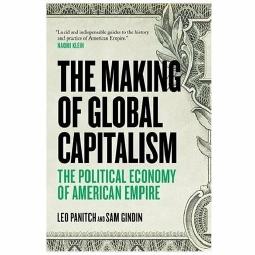
File: 1579565521454-0.jpg (36.03 KB, 242x400, 121:200, 662867.jpg) ImgOps iqdb

File: 1579565521454-1.jpg (48.78 KB, 400x600, 2:3, 22157443z.jpg) ImgOps iqdb
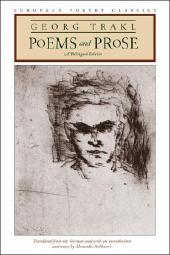
File: 1579565521454-2.jpg (58.06 KB, 352x500, 88:125, 32282313.jpg) ImgOps iqdb

>Montaigne's Essays: Book One
A collection of essays on various topics, loaded with references to ancient philosophers and history. Doesn't deal too deeply with anything and instead touches a wide variety of topics while providing a lot of interesting and often entertaining anecdotes from ancient history. I don't agree with a lot of what he writes but all the essays are still enjoyable and engaging without being too straining. Perfect to read before bed.
>George Trakl - Poems and Prose
A collection of poems and prose by the Austrian poet Trakl. It's hard to gleam much meaning from a lot of it but I found his imagery very powerful, with frequent juxtapositions of tranquil nature with death and anxiety-inducing reflections on the vastness of nature. There was one poem that really struck me while reading but I forgot to mark it down, so I'll put a different one that's still pretty good here as a sample - "To Lucifer":
Unto this spirit lend your flame, glowing Melancholy;
Sighing the head rears up to midnight,
By fresh green springtime hill, where ages past
A gentle lamb once bled to death, endured
The deepest pain; and yet the man of darkness follows
The shade of Evil, or he uplifts his clammy wings
To the sun's golden disc and then a tolling bell
Shatters his pain-rent breast,
Wild hope; darkness in flaming fall.
Red faces devoured by Night,
Along the harsh wall
A childlike skeleton probes in the shade
Of the drunken man, broken laughter
In wine, glowing melancholy,
The spirit's torments - a stone grows mute
The angel's blue voice
In the ear of the sleeper. Derelict light.
>孤島の鬼
A detective novel heavily inspired by Poe's stories. I can't write much without spoiling it. It's very slow-paced and maybe a bit drawn out at times but the twists are still interesting and it all leads to a fairly satisfying conclusion. Towards the end it kind of lost its steam a little due to being too predictable and a little bit anticlimactic but it was still pretty good. The author never relied on supernatural elements despite teasing it a lot throughout the story and always maintaining a mysterious atmosphere though, which I appreciated.
As far as I know there's no translation into English, unfortunately.
As of this month yes. Usually I leave early at around 5 in the morning to avoid traffic, get to my workplace early, and sit in my car reading for 40 minutes or so. At noon I have an hour paid lunch so I eat in my car and read another 40 minutes. I get home a little before 5 PM and spend the rest of the day reading books or visual novels, eating, browsing the internet, and taking care of housework in between, before going to bed at 11.
Weekends, I don't have a set schedule but usually spend most of the day reading as well.
I had a similar schedule when working a job earlier last year but with twice as long a commute, although half of it was spent commuting by train so I could read there.
I hate working and it has hindered my progress a little, but it's not too bad.
File: 1579751711043.jpg (112.45 KB, 420x607, 420:607, 9781350046603.jpg) ImgOps iqdb

M. O'C. Drury: When I was at Cambridge a friend of mine was studying for a doctorate in philosophy. After some period of research he decided that he had nothing new to say on his chosen subject, and that the only honest thing to do was not write a thesis. I remember how Wittgenstein's face lit up with pleasure when I told him of this decision. "For that action alone," he said, "they should give him his PhD." (1046)
>Portraits of Wittgenstein is a major collection of memoirs and reflections on one of the most influential and yet elusive personalities in the history of modern philosophy, Ludwig Wittgenstein. Featuring a wealth of illuminating and profound insights into Wittgenstein's extraordinary life, this unique collection reveals Wittgenstein's character and power of personality more vividly and comprehensively than ever before.
File: 1579799441220.jpg (148.12 KB, 1000x1545, 200:309, 71mryAK8HvL.jpg) ImgOps iqdb
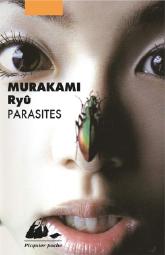
Do you re-read passages? Do you read out loud? Any tips for someone looking to get into reading?
File: 1579817504438.jpg (221.68 KB, 677x550, 677:550, wallace_books_delillo_002_….jpg) ImgOps iqdb

Not him but I read several hours a day. I personally reread passages constantly depending on how well I understood it if I was some difficult philosophy or if it was worded nice. I myself rarely read out loud but sometimes I'll notice how my tongue is moving to the words more or less. Reading CAN be like watching a movie where you're linearly moving through it if you can comprehend it, or it can be very interactive; I had an English teacher who said he heavily marked and wrote notes in every book he read like in pic related. I don't do this personally since I read digital pretty much exclusively, but I'd like to start. Think it would help for comprehension.
As far as getting into reading, you could go on goodreads or something, start with some book you want to read, and then you will likely discover more books stemming from it; I start one book then I feel the urge to see who was influenced by it, what influenced it, etc. The answer to the question is analogous to "How do I get into browsing imageboards and which boards do I browse?" You just sort of do it and eventually discover where you what to go.
File: 1579916087394.jpg (726.15 KB, 640x1098, 320:549, atlas-shrugged.jpg) ImgOps iqdb
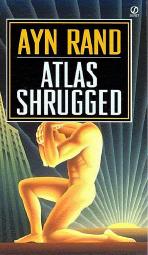
There were some parts that I wasn't sure if I was supposed to take seriously, for instance where certain characters claimed that charity was evil, or that Robin Hood was the greatest villain in history. I think the author was probably being hyperbolic, but it was written in a serious tone, so I'm not sure.
There are a number of romantic subplots that are frankly the most boring sections of the book. I somehow actually preferred when they were discussing industrial steel legislation.
It played with some interesting ideas. I definitely liked some of the characters and plot developments. Not to say that I fully agree with the premise of the book but I think some of its the bad rap is unmerited.
On the shitty romantic subplots it is easy to explain why they are there.
Look at a picture of a young Ayn Rand, then remember how Daphne taggart is described.
Yes, all the romantic bullshit is Ayn's personal sexual/romantic fantasies with a self insert as the lead.
Atlas shrugged has a lot of issues but many of the ideas are interesting and it is a book I highly recommend myself. I (mostly) liked it, even if I was getting frustrated with the hours long slow motion train crash, for example.
Still frustrates me less than reading Stephen King. Replace over the top unrealistic monologues for chapter long descriptions of lighthouses in Maine or some other dumb shit that has nothing to do with the story and you have the #1 reason I can't stand his work.
With both once they actually get to the point things start getting good, but with both you have to put up with a lot of bullshit fluff before you get there.
Apparently we have just a tiny part of Gilgamesh's adventures, but it's amazing we have anything at all from those very early days of civilization.
Is there more writing analyzing the page than the original writing on the page?
>>51912
>There were some parts that I wasn't sure if I was supposed to take seriously, for instance where certain characters claimed that charity was evil, or that Robin Hood was the greatest villain in history.
No. That's really Ayn Rand's position. She despised altruism. Embed related.
He'd probably say we're drowning in noise and only silence can save us or something to that effect.
I'm pretty sure archeologists are good at translating sumerian. The problem is that the story was an oral tradition, and thus few people ever wrote it down and the story changed over time.
File: 1580505205033.jpg (142.6 KB, 1500x875, 12:7, 388e088cdec85a9105e9fbdbf6….jpg) ImgOps iqdb

The fact that you're right here, right now, posting on /hob/ proves reincarnation exists. 100 years ago John Smith (or whatever your name is) did not exist. He had no brain, no mind, no body. Yet out of the infinity of time and space, out of dead, inanimate matter, HERE YOU ARE.
You factually came forth out of the raw elements of the universe once, and out of the infinity of time and space, it can and will happen again. If it happened once, it can and will happen again.
In addition to this, it's by definition impossible to experience unconsciousness, hence the word itself. Not a single second of oblivion will ever be experienced. The blackness of deep sleep is never experienced, only getting sleepy, dreams, and waking up.
Instantaneously when the light of consciousness exits your present body, it'll enter another. I don't how the process works though. Could be karma as Hindus and Buddhists believe, could simply be tied to normal physical laws and you'll enter the closet suitable vessel.
This kind of reasoning makes no sense. Karma does not mean what you think it means, it’s a huge misconception born in the minds of western occultists in the 19th century, and so is the idea of reincarnation.
>Instantaneously when the light of consciousness exits your present body, it'll enter another.
How do you not see the absurdity of this proposition. That would mean there is and there has always been some sort of perfect balance between the numbers of people (let’s include every living creature on earth while we’re at it) dying and the ones being born. You might want to reply “oh maybe we’re in a limbo of some kind waiting for a ‘suitable vessel’ to pop up somewhere” but then that contradicts your initial argument that the process is somehow instantaneous… or perhaps not everyone-everything necessarily undergoes the process of reincarnation? but again this makes it all fall apart. When faced with such obvious contradictions all you can do is come up with exceptions and made up hypotheses that are oddly arbitrary and lead to other dead ends.
>He had no brain, no mind, no body. Yet out of the infinity of time and space, out of dead, inanimate matter, HERE YOU ARE.
What about the first humans then, how did they come to be?
File: 1580585297570.jpg (465.84 KB, 2324x2196, 581:549, 43749.jpg) ImgOps iqdb

>That would mean there is and there has always been some sort of perfect balance between the numbers of people (let’s include every living creature on earth while we’re at it) dying and the ones being born
Or rather there's one single consciousness projected into what appears to be (but is not) a multitude of organisms. Like a single image perceived through a fractal, or a hologram.
>When faced with such obvious contradictions all you can do is come up with exceptions and made up hypotheses that are oddly arbitrary and lead to other dead ends.
It's a fact that you arose out of dead, inorganic matter. A (dead matter) to B (life). Your death is merely the inverse, B changing to A.
If A can change to B once, and it did, then it can and will happen again out of the infinity of time and space.
>What about the first humans then, how did they come to be?
How did you come to be?
File: 1580718961177.jpg (3.51 MB, 4032x3024, 4:3, 20200203_032622.jpg) ImgOps iqdb

The more I read dense stuff from authors like Steven Erikson, Gene Wolfe, Tolstoy, Dostoevsky, and Proust the more I appreciate a bite-sized light novel.
The Shy Man Syndrome : Why Men Become Love Shy and How They Can Overcome It
Author: Brian G. Gilmartin
Year: 1989 Format: Hardcover 228 pages
ISBN 13: 9780819170095 (978-0-8191-7009-5)
ISBN: 0819170097 (0-8191-7009-7)
Do you have a library card?
https://archive.org/details/shymansyndromewh0000gilm
Otherwise just use a search engine that isn't google with the terms download and/or pdf + the full title, and you should usually find it pretty fast.
Not him, but now I'm kinda curious. It's like when those reporters claim that wizchan is part of the alt-right army or something. I wanna know how others perceive "us".
File: 1581727344047-0.jpg (36.59 KB, 400x600, 2:3, 45593367z.jpg) ImgOps iqdb

File: 1581727344047-1.jpg (23.25 KB, 310x475, 62:95, 92573.jpg) ImgOps iqdb
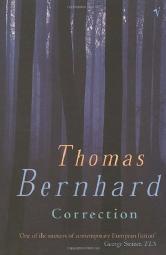
File: 1581727344047-2.jpg (304.89 KB, 1383x2184, 461:728, situationists2.jpg) ImgOps iqdb

>The Consumer Society
A book expanding on the idea of consumption posited by the author in The System of Objects. Of all Baudrillard's books this was probably the most straightforward and easiest to read. Everything in it is still relevant today IMO. I liked his discussions on the imperative to consume/enjoy and the commodification of time that's taken over.
>Correction
A novel about a man who goes insane with obsession over building a massive cone in the middle of a forest for his sister to live in. The story is narrated from the point of view of his closest friend who is trying to piece together the work and manuscripts he's left behind. Goes pretty deep into themes of suicide and dysfunctional families. Might be hard to read if you're not used to Bernhard's style but I really enjoyed it and the style lent to the insanity.
>The Society of the Spectacle
A book positing a theory about modern society being dominated by the "spectacle". I read this primarily because it was an influence on early Baudrillard. Many of the ideas apply to modern society but he wasn't as on point as Baudrillard was IMO. The core concept is interesting and accurate though.
No, you can't add it to your big collection of digital books you will never get around to reading.
At least not through that site.
I just finished reading this book. I usually avoid those books with the "look at me I'm so cool to include fuck in my title" books but this was good. Quite too many information to digest and take it. Probably have to reread it again later.
It's a collection of 30-40 random nihilistic/pessimistic thoughts about things like emotions, society and philosophy. Nothing new to wizards posting here.
>life is meaningless, no point in finding answers
>universe knows only one truth which is death and the rest are just human construct
>law of nature is violence and selfishness, people inherently hate everyone who tries to steal resources from them
>people who encourage you to grow up do it in return of a favor in future
>once you go up (life, achievements, pleasure) you can only go down (suffering, loss, despair)
Thanks, i'm reading it now and that seems accurate
I wasn't lazyposting, just thought it had some form of synopsis that could prove helpful but yes, it appears to bullet-point itself in a readable fashion
File: 1583151301712-0.png (373.73 KB, 800x800, 1:1, 1531661963418.png) ImgOps iqdb
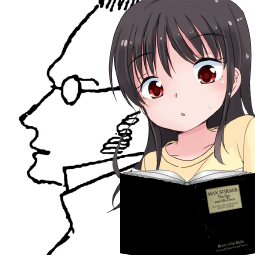
This seems to be a really tough book. I just finished the first chapter and I have really hard time trying to understand the grammatical composition of the sentences. The multi-layered meaning behind words like mind, spirit, cause is pretty confusing too.
Still, the book is really interesting and I have a feeling it's going to be life changing if I finish it and understand completely but I can't seem to find any reliable companion books or commentaries to accompany and help me with my reading experiences. Any help welcome.
–This wasn't really good. I read it only because the same guy wrote The Exorcist which I loved.
The 9th Configuration is about a mansion where soldiers are sent who became crazy - well there is an astronaut too. A new psychiatrist arrives at the mansion who is determined to help everyone…This is it in a nutshell. The characters are forgettable, plot is really simple and kind of predictable, the plot twist/big reveal is so stupid you most likely won't expect it. On the upside it is short, 200 pages in the digital format I downloaded.
It deals with the questions of suffering, why God allows suffering, evil, etc. Nothing new and since I wasn't really interested in the philosophical/theological debates (I was more interested in the characters, plot and atmosphere which unfortunately let me down) this book is a 4/10 for me. I guess if you are a christian or you are interested in christianity this book will hold more value for you. The ending was rather enjoyable though especially when Kane went Rambo on the bikersbut that is about the only part I genuinely liked.
File: 1583243361437.jpg (2.18 MB, 1587x1875, 529:625, 20200225_005819.jpg) ImgOps iqdb
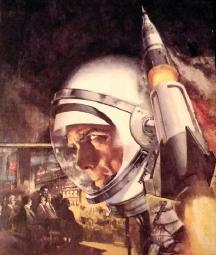
Interestingly enough, I just finished reading this exact book last night. An old paperback printing under the original title "Twinkle, Twinkle, Killer Kane".
I definitely liked it, I probably would have loved it in 1966 when it would have still been quite unique. Would recommend given that it's a short read, and as you mentioned to people given to theological/moral questions.
Maybe you read the screenplay from the 1980 film, because the biker scene wasn't in the book I read… This one was only 140 pages. I'm curious now…
This book was published twice. First with the title "Twinkle, Twinkle, Killer Kane" then with the title "The Ninth Configuration". Supposedly the author felt that the first version was too simple and unfinished so he published an updated and corrected version, The 9th Configuration.
Wait, so how does your version end? I'm curious too what differences are there between the two versions. Anyway, it is really interesting that we finished the same book yesterday. Sounds like Foot's work!
By the way, another interesting fact: supposedly the astronaut Cutshaw is the same astronaut who appeared at the house party in The Exorcist, to whom Regan said "You are going to die up there" or something along those lines.
Hidden for spoilers, though who knows if anyone besides us will read it.
Near the end of the book, Kane has the epiphany that indulging the men's insanity will cure them. After a few other happenings, Cutshaw insists on the Nazi/Great Escape psychodrama and they begin digging tunnels. Eventually after switching inmate/doctors clothing the castle is in total disarray with the appearance of the inmates literally running the asylum. Kane is in his room sleeping/hallucinating again like his earlier dream, but now has a diagnosis of Cutshaw's theological problem and they have their last conversation. The Senator arrives and is taken prisoner by the inmates who are in character as SS Men, and he is taken down into the tunnels eventually ending up in the secret chamber of Slovik's castle with Consuelo and a dummy of the late actor. The General arrives and is horrified by this state of affairs, Cutshaw goes to get Kane only to find he slashed his wrists and killed himself, carrying him down the stairs in his arms. The story ends with the place being shut down and the men returning to normal yet awkward lives, after visiting the priest Kane confessed to and remarking that he "was a lamb", two months later Cutshaw is back in space and seemingly cured.
That's how the '66 version ended.
Wow. It is like we read two completely different books. "The Ninth Configuration" version goes like this…
The Nazi-game takes place but here Cutshaw and the inmates are the prisoners who are digging a tunnel to escape from the staff who are dressed in SS uniforms. Cutshaw asks Kane to take him to Mass. They go to church and Cutshaw seems to like it. When they arrive back at the mansion a new inmate has just arrived, named Gilman. It turns out he served under Kane in Vietnam and then it is revealed to the reader that the guy we know as Hudson Kane is actually Vincent Kane and that Doctor Fell is the actual Hudson Kane. Cutshaw somehow learns this fact too and he gets angry that the guy who preached to him about goodness and God turns out to be a killer. Cutshaw steals a motorcycle and goes into town. He goes to a tavern and gets drunk. A biker gang notices him and realizes that he is the "crazy astronaut". They start a fight with him, beat him up and humiliate him. Vincent Kane goes after him and finds him at the tavern. The gang then starts to bully them both, Kane and Cutshaw pretty much don't resist and do every shameful thing that is asked of them. Then Kane finally snaps when the gang leader takes out his dick and wants Cutshaw to suck it. Kane goes crazy and kills four of them. They somehow get away and get back to the asylum. Kane goes to his room and talks with Cutshaw for one last time. Then Cutshaw leaves but then realizes that Kane's blood is on his clothes/shoes can't remember exactly now. He goes back and finds that Kane stabbed himself in the stomach and killed himself. In the epilogue Cutshaw comes back to the now-closed asylum and remembers his friend. We get to know that Kane killed himself because he thought his death would trigger a curing shock in the inmates. Later in a dialogue it is revealed that Cutshaw has been to the Moon and is now a believer in God. Then the other inmates/minor characters are mentioned, what happened to them, etc.
File: 1583771105740.jpg (296.46 KB, 763x1173, 763:1173, dubliners-james-joyce.jpg) ImgOps iqdb
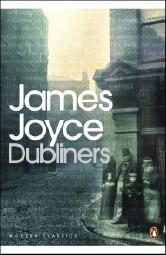
PLOT: Mary Crane wants to get married with her boyfriend but said boyfriend has money troubles. One day Mary steals money from the place where she works at to help out her boyfriend, Sam. She thinks that with the stolen money all of Sam's debts can be paid off and nothing will stand in the way of their love. However, on her way towards Sam, Mary gets lost and stays for a night at a motel run by a recluse called Norman Bates…
Take note everyone, this is how you write a good horror/thriller properly. No unnecessary details or parts which add nothing to the story /I am looking at you, Stephen King/ Psycho focuses on the subject all the time and doesn't get derailed. The characters are sympathetic and do what their roles demand of them well. Let's mention the main character for a sec, Norman Bates - the book literally starts with his mother insulting him for being a hermit and a loser who never had a real job - aside from working at the family motel, who never had a gf, who never had friends, who always lived with his Mom all his life. The mother also mentions how he hates other people generally and we get to know that Norman basically spends all his free time reading. Quite wizardly and I could identify with him very well, I think most people here can relate to him. Also, unlike in the movie version, in the original book Norman is older, 40 years old, he is also fat, wears glasses and he is balding. Guess they had to change that for the movie because normals can't identify with ugly people. Funnily enough, he literally is a wizard, he is interested in occultism and such. So yes, the character of Bates is definitely one of the biggest sources of enjoyment while reading Psycho. The plot is simple, yet not at the same time. God, I wish I hadn't watched the movie before reading this gem. Knowing the plot twist ahead kind of took away the fun I would have been part of if I didn't know it. But anyway, I still loved Psycho. It is also relatively short, around 250 pages in digital format. I heavily recommend this to everyone who likes a good thriller/horror. Oh almost forgot to mention that the writing is very good. I don't know when was the last time I enjoyed reading a book so much, the author is just so…fluent? He writes very smoothly and naturally. Or maybe we just think similarly. Anyways, 10/10 book.
Cool review. I've stuck to short stories lately but I think I'll dip into novels again to try this one.
Only limited time left and too many books to read. Just read something you absolutely WANT to read.
It's quite a rare find, and i can't get it online, wondering if anybody has a PDF
I don't know the author, but apparently is was about a wiz-like guy who was working a mundane job and would fantasising about being free from his slavery by being a kid on adventures, thanks
File: 1584384254496.jpg (55.53 KB, 333x499, 333:499, 51WPSlBnifL._SX331_BO1,204….jpg) ImgOps iqdb
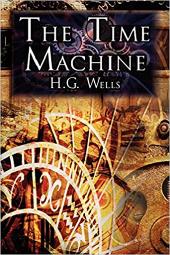
The whole "humanity ends up as retarded, almost genderless, pussies" was okay but the way it was presented made me interested in reading about biology or anthropology. The idea that the destruction of the family, social roles, and civilization in general can come in such a natural way as they came is something that was in my mind but never really gave it any profound thought. So, anyone can recommend some books to start in human evolution, or some must read biology/anthropology/sociology books?
http://libgen.is/fiction/6224F31CBAF17BF98EFEC1203BEBF115
>Man After Man is an ambitious attempt to view the future as far distant from us as those ramapithecine creatures whose fragmentary remains turn up in African fossil beds. What is our future? Will the human race exist in 1,000 years time? In 10,000 years? In 100,000 years time? If so, what will we look like and how will we behave? How will we have developed or adapted, and why? What will be the effect of that change on other animals? Man After Man is an illustrated anthropology of the future. It shows how the human race might evolve naturally or be adapted to face life under the sea or in space. And how the descendants of Homo sapiens might meet the harsh challenge of a new ice age or the adverse conditions imposed by the greenhouse effect, ozone depletion or magnetic reversal.
File: 1584581787480.jpg (270.1 KB, 1600x1200, 4:3, 1562114684525.jpg) ImgOps iqdb

>The Castle of Otranto
The first gothic novel. Does a good job of keeping supernatural elements mostly hidden until later in the book, maintaining the suspense. Not amazing but it was a short read that didn't overstay its welcome.
>Beyond the Pleasure Principle (Freud)
A fairly short essay trying to move beyond just pleasure as the driving force for human behavior. This was apparently his introduction of the death drive (in writing at least). It's not as developed as it was in Civilization and Its Discontents but it will still a good read containing some interesting explanations for things like repetition and masochism/sadism.
>Philosophical Grammar (Wittgenstein)
Collection of some of his notebooks. This came before Philosophical Investigations but it feels like it clarifies quite a few ideas from that. There's also a large section dedicated to his thoughts on mathematics, which weren't present as much in PI. A lot of them felt like "no shit" type observations (maybe just because I was already pretty familiar with his thought) but quite a few got me thinking. Would recommend if you read and enjoyed PI. Planning to check out the Blue and Brown books next, though the epub edition online has shit formatting so I'll probably end up ordering it online.
>The Archetypes and the Collective Unconscious (Jung)
A collection of writings by Jung explaining and giving examples of archetypes and the collective unconscious. I usually thought of Jung as a woo woo bullshitter because of how he was presented on imageboards, but they were either talking out of their ass or that came later in his career. Neither of the concepts were the mystic bullshit I'd assumed them to be, and all his ideas were reasonable. To be honest I even enjoyed reading him more than Freud.
>Parerga and Paralipomena Vol. 1 (Schopenhauer)
A collection of essays, dealing with topics like the history of philosophy, spirits, and general advice on life. Considering how Schopenhauer always gets portrayed on imageboards, I was surprised at how good his sense of humor was. I was laughing out loud at he parts where he ripped on the Jewish and Christian religions and bashed Hegel and other university philosophers of his day. All the essays were great but "Aphorisms on the Wisdom of Life" was the most enjoyable to read because of how similar it was to my own thinking. Probably a better source of self-help than the shit advice given in modern self-help books or by youtube charlatans - for wizards, at least. And everyone who's ever labeled this guy as a whiner is full of shit because he explicitly recommends against lamenting over trivial things in one section.
>Critique of Pure Reason (Kant)
I went in expecting this to be incomprehensible because of how it's portrayed on the internet but, possibly because I had already read Descarte, Spinoza, and Hume, most of his ideas were actually pretty intuitive. I reread some sections a few times just to get down the subtleties but it didn't feel nearly as hard as I'd been led to believe. But apart from difficulty, it did make me start thinking in a new way. I won't claim I'm reborn or stupid shit like that but it really opened up my mind. Guess that sounds kind of superficial but I don't want to get too deep into it writing an essay or something.
>Antony and Cleopatra
>The Winter's Tale
>As You Like It
Not much to say since I don't want to ramble, all were enjoyable. Antony and Cleopatra was my favorite of three, followed by As You Like It. Winter's Tale was good but it was kind of an odd mix between a tragedy and a comedy - not as emotionally moving as Antony and Cleopatra and not as funny as As You Like It.
>Persians (Aeschylus)
Maybe hard to understand the valuefrom a modern perspective (and without the performance) but I still enjoyed it. The introduction by the translator put it into context and made it a little more moving.
Do you actually remember any of the books you read? How much of it would you say that you assimilate in the long-term?
With regards to the first critique's section the "refutation of idealism", how does one reconcile the alleged successive objective states in space with the notion that space is imply a pure form of the intuition, so things that would be persisting in space would just be the representation of them or the way they appear to us and not how they actually are and not objective, and if they are only the way they appear to us then how is this a refutation of idealism at all?
>>52516
>Everything in it is still relevant today IMO. I liked his discussions on the imperative to consume/enjoy and the commodification of time that's taken over.
it is certainly, but how do you stomach this pedantic and pretentious style, likewise with debord. it's like these authors make a conscious effort to be as unnecessarily verbose as they can. just ranting as im done with the consumer society.
File: 1585234379189.jpg (72.8 KB, 610x344, 305:172, illustration-heinrich-von.jpg) ImgOps iqdb
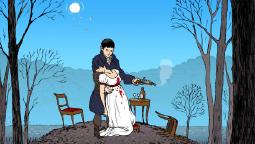
>…The very essence of Kleist: on the one hand Romantic madness; on the other, the rigid bearing of a Prussian officer, an almost unbearable tension that would've destroyed a man of weaker will.
>…His constant struggle to hold a balance between depression and euphoria, to oppose every drive with a contrary drive–a battle of opposites he carried over into his dramatic work.
>His friend Müller: "Kleist loved death as the spice of an insipid life."
>Those who wish to outlive the joys of youth must learn to make peace with the world, and of that Kleist was incapable… in short, everything that has characterized man and the world through the ages filled him with nausea. Over the years his skin, instead of growing thicker, had grown thinner, more irritable, too irritable to bear the thousand pinpricks and insect bites of day-to-day life.
>"Ah, how empty and bleak and sad it must be to outlive one's heart." That was just what had happened to him. He was still active, but his heart was no longer in anything he was doing, he had ceased to love his art, and they were vegetating together in a kind of ruined marriage.
>"… his rectitude, honesty, and integrity were such as to fill me with a horror of all dissembling, all boasting, all calculated behavior."
https://en.wikipedia.org/wiki/Heinrich_von_Kleist
File: 1585890779026-0.png (34.25 KB, 129x127, 129:127, Sgs.png) ImgOps iqdb

does anyone have the habit of taking notes when reading?
I use e-books to read and I don't read for long hours, mostly just a hour or a hour and a half and I can't seem to remember the things that I had read a few days back
this gets really worse when reading aphoristic texts or non fiction because unlike fiction that has a linked flow between chapters they end up being segmented and easy to forget
I am thinking of making notes and I started taking notes for the book I am reading now
after completing my reading session I just realized I've copied sentences word by word and instead of being a short and easy to recollect text I just ended up almost writing the whole book down
overall this was a total waste of time
so anyone here who take notes when reading give any advice on how to properly take notes
File: 1585964189750.png (436.72 KB, 331x499, 331:499, ClipboardImage.png) ImgOps iqdb
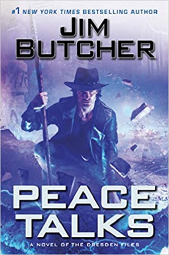
File: 1586133111686.jpg (272.71 KB, 500x491, 500:491, heinrich_von_kleist_schaal….jpg) ImgOps iqdb
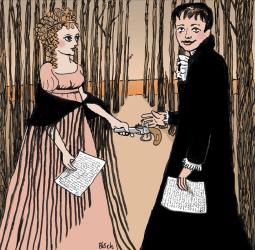
>Anymore like this?
Just to be clear, that part you quote is written by his biographer, not von Kleist himself. I see writing like this in a lot of biographies from the early to mid twentieth century. You might like, for example, Emil Ludwig, who wrote many popular biographies.
Here are a few more things from my notes that you might like:
>One of the first literary moderns, he consistently violated the established values of his age by rendering life as he found it–unsettled, unsettling, and inexplicably absurd.
>[A]ltogether, he wasn't cut out for society; in him there was a "sad clarity," which, unasked, revealed to him "the thought behind each look, the meaning behind each word, the motive behind each action," which, in short, showed him everything, even his own nature, in all its wretched nakedness.
>"My sole and highest goal has vanished; now I have none." He sensed that neither honors, riches, or knowledge could ever really satisfy him.
>…what tempted him most was death. For his innermost feeling told him that the evil which poisoned his life would end only with his life, because it was inside him: "For this forever tormented heart gives me nothing but pain."
>Plainsong by Kent Haruf
Novel set in a fictional town in Colorado, based apparently on Yuma, Colorado. The author believed that small town life offered as much worthy of observation and literary interest as cities, and this book focuses on the lives of several people in this small town, most of whom cross paths in some way. The central focus of the book is a teenage succubus who gets pregnant and ends up moving in with two elderly farmer brothers, both bachelors, at their farm outside of town. I enjoyed his clean, plain style of writing, the witty and realistic working class dialogue, the sensitivity towards the characters. One thing Kent was praised for was writing "unsentimental" books, however I'm now halfway through the second book in the trilogy of novels set in Holt, and I would say they are quite sentimental at times, with many characters crying on pretty regular basis. It sometimes reminds me of what Americans call "Hallmark" movies, although his assertiveness and insight into the details of how various aspects of the town function (e.g., cattle sales, social services, skinning a horse, local plants) is reassuring and interesting.
>In The Sanctuary of Outcasts by Neil White
Non-fiction story of an editor in the early 1990s who gets convicted of "kiting" checks (can't recall what this exactly means), and is offered a deal whereby he spends his sentence in a lepers colony in Louisiana. He turns up pretty ego-centric and materialistic, but gradually gets acquainted with the lepers living there, hearing their tragic life stories (abandonment, ostracism etc). There is a brief history of leprosy, the nature of the condition, and a few people become especially friendly with the author. An interesting read, quite straightforward.
>Wagner and Philosophy by Bryan Magee (still reading)
Fascinating book about Wagner's relationship with philosophy throughout his life, but really it focuses on other things like his depression, political involvement, relationships etc. I knew that he had been poor prior to his success, but this book portrays him more as a kind of angry bohemian, who spends his time discussing the destruction of society with leading anarchists, gets involved in street battles with the police, writes newspaper articles promoting anarchism, sleeps with the wives of men who offer him financial support, and is convinced from a young age that he is destined for greatness. The book also provides interesting insights into French and German society and politics at the time (mid-18th century).
Quote: "Until his fifties not a year of his adult life went by in which he did not seriously contemplate suicide" (p.19)
Plot: Patrick Kenzie and Angela Gennaro private investigators are back, this time they are entrusted with the duty of protecting a psychiatrist's son but they soon realize this case is much more complex and deeper than it seems like…
Wow, what a disturbing book. I'm used to reading dark stuff because I mainly read horror or thriller but this one was pretty sick. Much more darker than the previous book "A Drink Before The War", that one had a melancholic feeling too but dealt with gang-wars and race issues while this book is about catching the incarnation of pure evil, a freaking psychopath. Many gore in it, too - much more bloodier than the previous book. What can I say? Suspenseful, thrilling, the characters are sometimes annoying but bearable, there are some nice plot twists in it though the identity of the killer is very, very obvious from around halfway on. Also felt like the writer was HEAVILY influenced by the works of Thomas Harris - Red Dragon and The Silence of The Lambs. This is a good crime fiction. 7/10. Better than the previous book.
File: 1587398756589.png (261.53 KB, 511x729, 511:729, 23C9C588-E954-4D97-AA7D-23….png) ImgOps iqdb

It’s available at thelittleprince.online
Very wizardly book
File: 1588645970489.jpg (128.6 KB, 768x1024, 3:4, neurologic_leary_1973.jpg) ImgOps iqdb
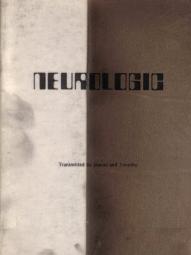
This book is written in a sleek, modernist spaceship font, so it’s a time capsule in a lot of ways. It’s formatted like a pamphlet or essay, and very readable at only 40 pages or so.
It probably best classified with the drug literature of the 70’s and is filled with clichés about space travel, forgotten acronyms (G-Pill, PSY PHI) and overblown claims about LSD, with some good bits of humor thrown in.
The book is a manifesto of sorts presenting Leary’s eight-circuit theory of consciousness, and there are some interesting speculations about human development and evolution. The content itself is somewhat of a trip, and some sections were clearly inspired by an acid trip. Apparently Leary wrote it when he was in and out of various prisons.
Leary is a fun writer, and I enjoyed reading this. I’m somewhat biased because I already agree with most of what he says, but I can see how someone could roll their eyes at this type of stuff if they’re not already on the same page.
This book belongs in the same category as Huxley’s Doors of Perception. Huxley was more poetic, while Leary comes at it from the perspective of science fiction and psychology; it’s an ode to LSD and a relic of the counterculture of the time, but still worth reading if you’re into that sort of thing.
File: 1588724024186.png (27.97 KB, 560x869, 560:869, Psychedelics_and_Religious….PNG) ImgOps iqdb
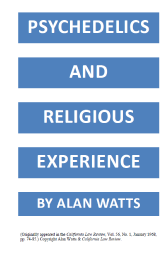
Finished Psychedelics and Religious Experience by Alan Watts (1968), continuing with my binge on psychedelic literature. This one is even shorter than Leary’s book, at under 20 pages, originally published in a law journal. I discovered Alan Watts a long time ago through the pop-spirituality videos on YouTube (he died in 1973), but I never looked into his writings before, so I was pleasantly surprised to find that he’s a fairly good writer. Once again I picked this out at random.
This is basically an argument for the legalization of psychedelics, so it won’t have much to offer you if you’re heard it all before. The state shouldn’t interfere with religion, and psychedelics induce religious experiences, therefore the state shouldn’t interfere with psychedelics. What keeps it interesting is Watts himself, who has a flowing and unpretentious style and knows how to explain complex philosophical and religious ideas in a straightforward way. As a student of the psychology of religion, Watts describes his own experiments with LSD-25 and other drugs, is careful to point out that he did it when it was still legal, and makes his case in an engaging and relatable way. Again, I’m biased because I already agree with him, so your perspective may be different.
This statement hasn’t aged well:
>To us, [fruit flies] all look alike and seem to have no personality-as do the Chinese when we have not lived among them. Yet fruit flies must see just as many subtle distinctions among themselves as we among ourselves.
But I don’t blame him for not being sufficiently “woke” by 2020 standards.
You can read it here for free: http://psychedelic-library.org/watts.htm
File: 1589156276282.jpg (326.16 KB, 1400x2154, 700:1077, the-kingdom-of-agarttha-97….jpg) ImgOps iqdb

File: 1589229827460.jpeg (93.16 KB, 500x787, 500:787, A5F9BF13-13B7-4184-9DA9-0….jpeg) ImgOps iqdb
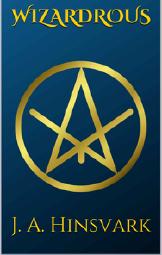
It’s a bullshit excuse to get intoxicated. There’s nothing religious or spiritual about frying your brain with psychedelic drugs. The degenerates and stoners will claim that shamans in some remote american regions used to do mushrooms and mind altering plants but the context is completely different, these men were “trained” and they wouldn’t abuse this stuff just for the sake of experimenting or having fun. It’s like comparing the consumption of coca leaves by south american tribes to the modern use of cocaine, or thinking that indulging in alcoholism is fine because the catholics use wine in a ritual. This is to make a parody of genuine religious practices to justify hedonist behaviour.
File: 1589409385898-0.png (38.42 KB, 200x304, 25:38, oviid.png) ImgOps iqdb

File: 1589409385898-1.jpg (22.12 KB, 294x475, 294:475, aeneid.jpg) ImgOps iqdb

Amen, this man is right, please stop this harmful pseudo-history to justify your stoner tendencies. It's cool if you do drugs, just don't make it seem like they're actually good for you.
I hate linking to a twitter thread, but this is spot on : https://twitter.com/owenbroadcast/status/1260919688063746048
Watts, Leary… who’s next, Huxley, Ginsberg? it’s amazing that after all that’s been written on the subject for dozens of years stoners still take these new age gurus and spooks at face value. If you want to do drugs fine, but don’t try to pretend you’re on some deep spiritual quest or what not while you’re just experimenting and having fun. This is a bullshit excuse that’s even less credible now than it was back then.
If some people want to explore their spirituality using psychedelics, what difference does it make for you? They're not forcing you to participate. Nothing is stopping you from hiding the posts if you disagree with them so much.
>new age gurus and spooks
Do you have any substantive criticism or are you just going to shout "spooks" over and over until we stop replying? Your emphasis on calling people who use psychedelics "degenerates and stoners" makes it pretty clear that you have some kind of axe to grind and are not interested in having a rational discussion.
>If you want to do drugs fine
'Doing drugs' is a politically loaded expression, and you know it.
>don’t try to pretend you’re on some deep spiritual quest or what not while you’re just experimenting and having fun
Is experimenting and having fun incompatible with a deep spiritual quest?
But there is nothing spiritual or even mystical about taking drugs, natural or synthetic. It is different in some cultures but the context matters, the substances are more of a support than something you experiment recreationally with just for the sake of it, without any kind of guidance.
Some people will experience "altered states of consciousness" and see pink elephants and think they are some sort of sages or saints. Of course they would rather believe they are "ascending" than descending, which is what really inevitably happens as they further fry their brains with anything they can get their hands on.
>Do you have any substantive criticism or are you just going to shout "spooks" over and over until we stop replying?
There is ample research on the history of psychedelic drugs and their proponents over the last eighty or so years, and it does not paint a kind picture. That's just how it is.
>Is experimenting and having fun incompatible with a deep spiritual quest?
Yes.
Quick question: have you actually tried any psychedelics? If so, what substance and dosage, what was your set and setting, and did you have a sitter present?
File: 1589580442125.png (31.49 KB, 250x186, 125:93, drimogemon.png) ImgOps iqdb

I hate "enlightenment from drugs" fags as much as anyone, particularly gurus like Leary. I agree, tripping on LSD and the likes is not inherently spiritual.
BUT
the experience can be so profound, so incomprehensible, so unimagineable-impossible and utterly humiliating in a way that it's extremely tough not to return with some insights on what matters in life. What's your purpose. What it really means to be.
I the end you were just tripping on acid or shrooms dude lol. You were just frying your brain with an extremely potent psychedelic drug. Duh! But it doesn't really invalidate your own, very personal lessons you've learned from it - no matter how pretentious they may sound.
Sometimes tripping can just be recreational, relaxing, hilarious, loads of good fun. That's fine too, even better arguably. Don't need to mystify this shit. Shit doesn't need to be deeply philosophical but if it ends up being philosophical anyway that's cool. Just don't think you're Buddha now because you ate a bunch of shrooms.
I can also see why pychedelicsfags love to rant about and shill their drugs, making them a part of their identity. A trip is something the vast majority of people, and talking about it to someone who's never tripped is like explaining colors to the blind. It puts you into a small group of people who """understand""". That's why lots of communities surrounding these drugs are fairly obnoxious (leddit).
>It’s a bullshit excuse to get intoxicated
It really is but then again, an excuse shouldn't be required in the first place. If you want to do drugs, feel free to.
Pic very much related; it was me on 40g sclerotia. It's sad that I will never explore the drill tunnel again. But I've made my peace with it.
I respect the fact that drugs have opened people's eyes but it is a gamble not only in what kind of lesson you'll learn but how you'll learn. There are some hard lessons we may not have to learn if we only act prudently and not gamble our minds and bodies in pursuit of godhead, mere dreams, and escape.
I respect the fact that drugs have opened people's minds but it is always a gamble, not only in what kind of lesson you'll learn but how you'll learn it too. There are some hard lessons we may not have otherwise had to learn if we only acted prudently and not wagered our minds and bodies for empty dreams, escape, and oblivion.
File: 1589590521183.jpg (542.2 KB, 1302x1600, 651:800, Aleksandr-Sergeyevich-Push….jpg) ImgOps iqdb

Y'all wizzies read Pushkin?
File: 1590049764706.jpg (56.43 KB, 720x501, 240:167, 1436486753097.jpg) ImgOps iqdb
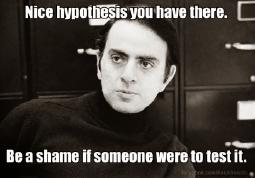
Did you consider the majority of wizzies might experience awakenings?
File: 1590053821952-0.jpg (27.44 KB, 306x499, 306:499, 510P0qDs12L._SX304_BO1,204….jpg) ImgOps iqdb

File: 1590053821952-1.jpg (12.95 KB, 375x500, 3:4, s-l500.jpg) ImgOps iqdb

File: 1590053821952-2.jpg (111.63 KB, 768x1342, 384:671, peewee.jpg) ImgOps iqdb
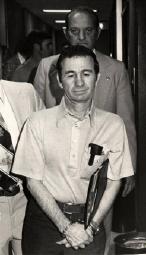
Gaskin's early life was characterized by a great deal of neglect. When he was one year old, Gaskins drank a bottle of kerosene, which caused him to have convulsions until he was three years old. His mother apparently took so little interest in him that the first time he learned his given name—Donald—was when it was read out in his first court appearance, for a crime spree Gaskins committed along with a group of fellow delinquents which included robberies, assaults and the gang rape of one of the delinquents 11 year old sister. Gaskins described the motive for the gang rape as the need for young, tight and fresh pussy, as the boys were bored of the older loose used skanks that they were accustomed to. Gaskins licked every crack of the 11 year old succubus, savoring every second of the gang rape.
Following his conviction for his role in the crime spree, Gaskins was sent to reform school. There, he was regularly raped by his fellow inmates. After escaping from the school, getting married and voluntarily returning to complete his sentence, he was released in 1951, at the age of 18. Gaskins briefly worked on a tobacco plantation until his 1953 arrest, after he attacked a teenage succubus with a hammer for an alleged insult. Gaskins was sentenced to six years' imprisonment at the South Carolina Penitentiary.
After being raped and "owned" in prison, he earned his fellow prisoners' respect by killing the most feared man in the prison, Hazel Brazell. As a result, Gaskins received an extra three years in prison, but from that point on he was considered one of the prison's powermen, as he gained respect from the other powermen in prison. He escaped from prison in 1955 by hiding in the back of a garbage truck and fled to Florida, where he took employment with a traveling carnival. He was re-arrested, remanded to custody, and paroled in August 1961.
Following the years after prison, he committed various sadistic murders, torturing his victims with various tools, such as a 12 inch knife he called "toothpick" and home improvement tools. His preferred method of getting rid of the bodies and belongings of the people he killed was weighing down their bodies and possessions with chains and sinking them to the bottom of the bogs and swamps of South Carolina. Most of the time, his victims were still alive when he weighed them down and sunk them. He especially felt gratified when he seen the last moments of his victim's lives when their last breath of oxygen came back up as a series of bubbles after sinking them.
Final Truth by Donald "Pee Wee" Gaskins pdf - https://drive.google.com/file/d/0B73DHKayVcpmX2ZMdVBXQjVyNVk/view
Angry Grandpa: Friends With a Serial Killer - https://www.youtube.com/watch?v=vWuhbiB2Px8
File: 1590062923963.jpg (23.13 KB, 300x413, 300:413, carl_panzram_1.jpg) ImgOps iqdb

>only autobiography of a serial killer ever published
There's a few out there, Panzram's is pretty interesting too.
File: 1592055361524.pdf (2.08 MB, How To Be Alone Forever by….pdf)

It's an essay written by a 50 year old wizard. Entertaining and refreshing read. He even mentions wizchan.
File: 1592055481859.pdf (1.38 MB, Being-Yourself-Alone-Forev….pdf)

Being Yourself Alone Forever. It's the sequel.
More of a disorganized rant, but still a good and easy read because he's a practiced writer.
I've only gotten through the intro so far, but this reads like someone who's been on this board for a long time. I'll update later if I get a bit farther along.
It really interests me how there's so many people on this chan that make such long posts.
I just got through it up to the practical tips section, which are really sensible and quite good. What to have in a first aid kit, the suggestions for exercise, try to get some sort of job just to keep from going insane. I feel like I've had to discover so many other basics things mentioned here myself that it feels like I wasted a lot of similar time in trial and error. I kind of wish it went more into diet or specifically listed out possible exercises, but I suspect that that was done on purpose. It seems the author is very keen at saying the most sensible things and going no further. That said, I'm surprised 'keeping current on vaccinations' didn't get a mention in there.
Let me quote the shit I really like from this:
>Other people, and the lives they lead, and the ways that they talk about them, and
the ways they interact with you – all will provide a healthy contrast to your own life.
At the end of an average workday, I flee back to my solitude with deep gratitude and
almost indecent levels of joy. No shit
>The thought of laying injured and
dying, and nobody being there to help. Here is where the lack of practical support that
people offer one another will be felt most keenly.
hit hard. I have this exact fear.
>That said, I'm surprised 'keeping current on vaccinations' didn't get a mention in there.
He's not a traveller. That's probably why.
But it is overall a very pleasant read. It's extremely rare to come across wizard literature, because as he mentioned, good luck getting that shit published in any way other than posting it on your obscure wordpress blog. I'm glad I found this gem.
>I kind of wish it went more into diet or specifically listed out possible exercises, but I suspect that that was done on purpose.
Yeah. He can be long-winded but he also doesn't go into unnecessary things. Diet and exercise tips are easy enough to find elsewhere. The point here is that you actually need to go and do that, and not neglect yourself because it's going to lead to suffering down the road. The details are up to you.
File: 1592120010110.jpg (33.01 KB, 313x500, 313:500, Proust.jpg) ImgOps iqdb

I stopped reading after the guy couldn't make up his mind what being "Alone Forever" meant, (was also annoyed at that particular wording, since it's such an awkward and clumsy reverse of the more common "Forever Alone", like the well known sub-reddit, which I'd wager is where he probably spent most of his time instead of on wizchan). So he states that someone who even has a "few good friends" can still considered to be forever alone? What? Are you fucking kidding me? Is that supposed to be a bad joke? Sorry for the nitpicking, but someone who still has a "few friends", especially good and or close friends, is definitely not forever alone. Not even close, at least not yet. Even I, with absolutely zero friends or special little circles (online or offline), and whom almost never leaves the house, wouldn't exactly consider myself forever alone yet, since I still have my parents with whom I live with as a literal hermit and am on good terms with. A lot of what's written there seems to be more heavily directed at people who have to work for a living and therefore need to have at least some interaction with the outside world and other people. Besides my parents, I never interact with anyone. My arrangements for the future are also already taken care of for the most part and I essentially plan to live here, in this house, for the rest of my life. Even after my parents are gone, I'll still able to live in this house, since arrangements have been made to allow for that to happen and plus I'm on disability and get a good amount of health coverage/monthly money and even a longterm savings plan just from that alone. I've also already developed habits of eating healthy, regular at home exercise, and taking certain supplements (like pro-biotics and Vitamin D) to help offset the negative side-effects of my isolation. I've actually been doing them for years now, but the benefits to my mental health have really only amounted to slowing the decline, not reversing how it is that I actually feel.
As far as eventually learning to "enjoy" being forever alone, I find that hard to believe. Personally, I enjoyed being forever alone for quite a bit going on near a decade, but then was savaged by feelings of loneliness and anhedonia later on. It seems the author had the reverse experience (was lonely in the beginning, but then accepted it later on), so he and I seem to be wildly apart on that basis and any comments he has to make on what he went through will very likely have very little relevance to someone like me, considering our vastly different starting points, trajectories and life situations in being forever alone. Again, not to be purist about it, but assuming he still goes to a job and talks with his coworkers on a regular basis then he's still at least getting some interaction with other human beings (which seems likely considering his comments on having friends) and isn't technically forever alone. The way my future is going, I'll pretty much never have to leave the house and never have to interact with anyone which will, in the actual definition of the term, essentially leave me alone forever, with only something like the internet to provide me some form of interaction and perhaps not even that, depending on if I reach such a point where posting on this website doesn't seem worth the effort anymore. I'm honestly surprised I haven't reach that point already, since this site seems to only get worse and worse with each passing year.
The way I see it, the most crushing thing about being forever alone is knowing that, at some point, no on the face of the god damned earth will give a flying fuck about whoever it is you are and whatever it is your well being is. For someone like me, who still has their parents around, it's a terrifying thing to think about. Even though I'll be taken care of, assuming all goes well, I won't have either my parents around to keep me company or to talk to me when I'm feeling sad. Once they're gone, no one will care for me ever again. No one will love me ever again. In this way, I feel like the author, or anyone else, who had to get used to being unloved at an early age has a clear advantage when it comes to the inevitable endgame of being forever alone. They can't lose anything, like the tender, loving care shown by their parents for instance, since they never had it to begin with. My parents aren't perfect, far from it, but they're still very understanding people and because of that understanding and caring that they've shown me, their absence will only be that much more painful when it happens. In fact, it'll undoubtedly be the most heart-wrenching agony I'll ever experience and, for all I know, will be so extreme to deal with that I might finally end my own life just to escape from it. That's why I mostly find what this guy is talking about as far as reckoning with permanent isolation to be kind of a joke, since I'm afraid that, in my case, considering my own unique predicaments, there can never be any such thing.
>It really interests me how there's so many people on this chan that make such long posts.
Why does that interest you?
>I've also already developed habits of eating healthy, regular at home exercise, and taking certain supplements
>but the benefits to my mental health have really only amounted to slowing the decline
Improvebrahs seething at this
They will never accept the truth, they are blinded by the optimism bias and don't even know it
>the most crushing thing about being forever alone is knowing that, at some point, no on the face of the god damned earth will give a flying fuck about whoever it is you are and whatever it is your well being is.
How and why is this crushing? It is a universal truth you will go back to the dirt unremarkable and unremembered. I actually find great pleasure and glee in that. Somehow it is a great fuck you to the process of growth and evolution.
I only wish i could be there when the final sun explode and wipes out this failed experiment completely.
Because every other chan in existence simply doesn't have these long, detailed posts. Instead, the post quality is dramatically shorter, and poorer. I find this surprisingly given how many posters her talk about how low their attention spans are, how low their IQs are, etc.–when by account of their posts, interests, and how they reply (relative to other chans, forums, or boards), I would have assumed the opposite.
File: 1592164190815.jpg (207.99 KB, 800x1137, 800:1137, Robert_et_Marcel_Proust_18….jpg) ImgOps iqdb
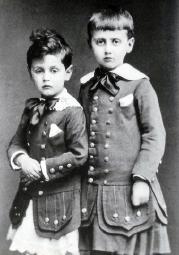
Thanks for this post, good to know other wizzies like Proust here. How far are you into it btw? He's the best writer of all times imo. I have this fantasy about a paralallel reality where Proust became fascinated by Edgar Alan Poe along with John Ruskin and In Search of Lost Time can be also read as a horror 7 volumes epic, like if the protagonist is haunted by his dead brother (which in fact he had but never mentions in the novels, which is why I came up with this idea in the first place.) Anyway, it's funny because I can never actually finish In Search of Lost Time. I've tried 4 times now and I ALWAYS stop about midway, take a break and when I come back I have this urge to just start over again.
>Again, not to be purist about it, but assuming he still goes to a job and talks with his coworkers on a regular basis then he's still at least getting some interaction with other human beings (which seems likely considering his comments on having friends) and isn't technically forever alone.
The point here is social isolation, not physical isolation. Being a hermit in the woods or self-imprisoned in the basement is besides the point, even if we're being purists.
Let's take you as an example. You won't be any less alone if you get out of your house, get a job and run around in town, because nobody in town or at the workplace really gives a crap about you. You interact with lots of people but they can't and won't provide you with social, emotional and material support. You are completely Alone in the middle of the crowd. You have no one. You write it yourself:
>The way I see it, the most crushing thing about being forever alone is knowing that, at some point, no on the face of the god damned earth will give a flying fuck about whoever it is you are and whatever it is your well being is.
That's what Forever Alone is about. That's also largely the definition that guy adopts in his book. The most hardcore version of it, anyway. Socially, a NEET in the basement who still has caring family is less Forever Alone than a wizchad with a job and hobbies, but no family and no friends.
>As far as eventually learning to "enjoy" being forever alone, I find that hard to believe.
To enjoy forever alone you need to set up a lifestyle with some variety in your daily routine. A routine of 15 hours internet and 9 hours sleep isn't going to work, it's going to grind your psyche to nothing. You need a daily change of environments and activities, such as work and hobbies. Something to stimulate your senses. So yeah, it's true, if you're already an anhedonic who can't bring himself to do anything, then no, forever alone can never be enjoyed. That's a real shit creek to be stuck in.
File: 1592173242531.jpg (84.32 KB, 600x836, 150:209, mages-11.jpg) ImgOps iqdb
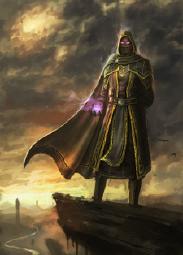
I just finished it. Thanks for sharing! Overall I liked it, especially the practical tips. (For wizards who are busy, you can find all the practical tips in the appendix.)
I don't really like that he tells people to escape being "Alone Forever." IIRC, he never talks about just how bad and dysfunctional many families and romantic relationships can be. Millions of people are trapped in horrible relationships. Sure, even if your druggie son or 300-pound bi-polar wife hates your guts they'll still call the paramedics for you if you fall down the stairs, but I doubt that's much of a consolation to the poor guy who's stuck with them in a house day in, day out.
This paragraph isn't really directed toward the author, but these forever alone types do seem to be a distinct species from wizards. And it's not just because most of them want to get married, have kids, etc. I thought maybe the difference I detected was because they were neurotypicals. But it turns out many of them are autistic or at least possess some traits of the disorder. I can't put my finger on the exact difference. Sorry, I wish I could articulate myself better.
And here is the part where he mentions Wizchan:
>Wizchan – this semi-notorious site is purportedly filled with angry sociopathic misogynistic young men (the cartoon image of the Alone Forever).
Personally I’ve always found it a refreshing read whenever I’ve dropped in. Wizchan’s core philosophy is that the Alone Forever life should be wilfully chosen, rather than resisted. Those men who mope for succubi and pine for some kind of normal life are cheerfully castigated as failed normies. This outlook chimes almost exactly with my own. Wizchan also hosts some of the best Alone Forever-themed Reading and Movie lists – and discussion about them – that you will find anywhere.
If you’re offended by Wizchan’s occasional bursts of craziness, and it’s almost impossible not to be, then you might ask yourself what you are even doing near the Internet. And just what are you worried about anyway? The state of society? GTFO, normie!
> don't really like that he tells people to escape being "Alone Forever." IIRC, he never talks about just how bad and dysfunctional many families and romantic relationships can be.
I think he omits this talk for the same reason he doesn't go in-depth about diet and exercise tips. We, his audience, already know that the world is full of sundry narcissists and junkies who will make your life hell if you give them the chance, we don't need him to tell us that. Besides, there's enough material on the subject elsewhere. I appreciate that he focused completely on the forever alone experience, which is what I picked up the book for.
>This paragraph isn't really directed toward the author, but these forever alone types do seem to be a distinct species from wizards.
I don't really see wizards as separate from FA, but rather a specific extremity of it. Let's not pretend that wizards are asexual zen monks by their nature. I don't doubt that most wizards occasionally think of succubi or dream of a perfect marriage, even if it's to an anime character or something. No matter how deeply it's buried, even wizards long for compnaionship on some abstract level, except maybe the few super-schizoids who have no emotions at all. The difference between wizards and other FA is that wizards don't act on this longing, unlike just about everyone else in the world does. They've consciously chosen to reject this aspect of human nature, for better or worse.
>How is this crushing?
Because I'll have to suffer the grief and absence of my parents, mostly my mother, who are the only people to have ever cared for me. Like I said already, someone who has never had any sort of loving attachments to others is undoubtedly much more adapted to the prospect of remaining forever alone than others who do have such attachments, such as myself. They can't lose anything, since they never had anything to begin with. I've always had my parents, so the notion of them not being here anymore someday and that I'll never, ever see or speak with them ever again terrifies me greatly.
>It is a universal truth you will go back to the dirt unremarkable and unremembered. I actually find great pleasure and glee in that.
That sounds more like being afraid of being forgotten or just of dying, versus being afraid of loss/grief/true aloneness. They're not the same thing. To be perfectly honest, I'd much rather be the one to die first, rather than suffer the grief/loss of losing my parents and thereby finding myself lingering on alone like a mournful, agonized ghost in this dusty old house. At the same time, I'd also feel like a lamb with only a thin sheet of glass separating them from a planet filled with rabid, ravenous rottweilers who'd tear me apart without a moment's hesitation. My parents are my shield/guardians in this sense and without them I'd feel exceedingly more vulnerable to the evils and the pitiless indifference of others.
>>53783
>You won't be any less alone if you get out of your house, get a job and run around in town, because nobody in town or at the workplace really gives a crap about you.
I suppose that's true, but the possibility, however slim, to form social connections with others is still there, whether they want to take advantage of it or not. Being locked away inside this house, I have zero chance to ever form social connections with anyone. People who even minimally expose themselves around the town are still at least somewhat putting themselves out there and, for all they know, have someone else who'd wish to form a friendly rapport with them. Many people will hardly give a wizard a second glance, or even downright ostracize them, but I'm more referring to those few that, even with the opportunity for social engagement, have absolutely no desire to reciprocate any sort of social advances that might be made towards them by others and who turn down or ignore those few, if any, that might try and do so.
>Socially, a NEET in the basement who still has caring family is less Forever Alone than a wizchad with a job and hobbies, but no family and no friends.
Agreed, I won't argue with that. Again though, they can at least still interact with the world and, assuming they met the right people or had the desire/ability for forming social connections with others, they could. Whether I wanted it or not, someone like me will never have that ability. I'm simply stuck in this house and once my parents are gone, that'll be it.
>So yeah, it's true, if you're already an anhedonic who can't bring himself to do anything, then no, forever alone can never be enjoyed. That's a real shit creek to be stuck in.
Indeed, that is sadly where I'm at, I'm afraid. To add on to what you said though, a sense of refreshing routine is important to a certain extent, but even a 9-5 job can get to grind people's psyches to nothing after a while, same as with copious media consumption. How many people can truly live their entire lives, (keyword here being 'entire', since a lot of wizard whippersnappers here consider themselves as being in this category when they really have no idea how a sense of aloneness can creep up on and devour you later in life), utterly alone and have it not bother them? Not many, I'd say. As with everything that guides people's thoughts/actions, it ultimately comes back to a person's ephemeral make-up. Like this >>53785 wizard just pointed out, it would seem that certain sorts of people, like hyper unfeeling schizoids, are far and away the best candidates to both enjoy and never be bothered by their status as being forever alone. In that sense, it really doesn't matter whether you're a wizchad juggling a job and a number of hobbies and whom is always keeping themselves busy with something, or someone else who's just a complete glutton of media consumption, sitting around and indulging in escapist pursuits from now until the grave. Some people are bothered by certain challenges of the human condition, (loneliness, anhedonia, depression, etc.) and some especially unique brains, call them miswired, call them malformed, or even deem them somewhat preferable, that aren't. Since this site's very inception, the notion that one can, and in fact should, become something comparable to a schizoid is a hyper unrealistic narrative that not many seem to realize is pretty much beyond the reach of anyone who isn't already one to begin with, (last time I checked human beings can't will their genetic make-up to be reconfigured as they see fit). Of course, that hasn't stopped people from shitposting about it for all these many years, which is really what that narrative's main purpose has only ever truly been. Merely to insult other wizards, put them down, berate them, judge them as weak or not good enough, and to generally make a mockery of this website, basically.
Over the span of almost two years I read up to the fourth volume, Sodom and Gomorrah but I feel my lectures were somewhat superficial so I reread the first two volumes during the quarantine and I appreciated the work even more. I'm experiencing somewhat hard times so the bittersweet Proustian worldview (the world full of magic and mysteries but yet so far away and pointless) was a nice analgesic.
Do these 'super-schizoid' type persons with no emotions really exist though? I think it's universally impossible to have no emotions. Being occupied with work and hobbies as well as constant escapism is a behavior based on emotions. These underlying emotions might be expressed as empty, hollow, indifferent and so on, but obviously this feeling of emptiness is something which the schizoid person flees, because he eventually does not like it. But while he knows that he can not fill the void with social relationships like normal people can and want to, he looks for surrogate, and media or work is the most convenient, yet even the schizo might suspect that this is not as rich and fulfilling as actual social bonds. Since there is no alternative though he let's that thought go and totally identifies with his solitary position in life, which despite the seemingly 'functioning' outlook remains a tragedy.
The latter is very rare, and I doubt there are many in this very situation here on wizchan. We get a post every once in a while where someone will slip up and say they have one friend or more. It's probably more common than you would think especially among those who are or have been in college and have jobs where being social is a prerequisite (I remember one guy posting about teaching surfing for fuck's sake)
It doesn' matter how social your job is if you are the type of personality that avoids forming connections. I work as a consultant and meet new people every day, and have no trouble making people like and trust me in my profession. My clients and coworkers like me very much, but they're not my friends in any sense of the word. As soon as work is finished they forget I exist and I foreget they exist.
You can work the most stereotypical chad jobs and still be a desolate loner in private. There's fundamental difference between necessary social interaction (work) and voluntary social interaction in private. You can have tons of the former while having zero of the latter.
Yeah, it is rare. But it's mostly because the most hardcore foreveralones seldom have access to jobs like that, since these positions are filled through connections 95% of the time and foreveralones have none. If a foreveralone ends up on the jobs by some freak accident, he's not going to get any closer to getting friends.
>You can work the most stereotypical chad jobs and still be a desolate loner in private.
to someone like me this makes no difference. that's already a thousand times more social contact and effort that I could ever endure, and it disturbs me greatly to see this kind of posts by seemingly well-adjusted people. You and I don't live in the same world.
>If a foreveralone ends up on the jobs by some freak accident, he's not going to get any closer to getting friends.
he wouldn't hold it down for long if he truly were a "foreveralone" like you say.
After living like a shadow during school I was a NEET and a literal basement dweller who never shaved, bathed twice a month and spent 15 hours a day on the internet for years. Then my parents told me to go to university or get kicked out. So I went to college and learned to be a suit monkey bit by bit. But on the inside I didn't change. I still don't give a fuck and I only interact with people for pay, never otherwise.
Since 7th june I'm on vacation and back to 15 hours of internet a day, not leaving my apartment for weeks and not uttering a word to anyone. Back to my real self. If any of my clients or coworkers saw my real self right now, they'd get a mental trauma.
So no, we don't live in different worlds. Not really. I learned to walk in the crowd but I'm still 100% alone. Unless you're a low-functioning autist, you could learn to walk in the crowd too, if the circumstances ever forced you. Play the game and hold down whatever job you needed to put food on the table. But on the inside you won't change.
How do you avoid getting bullied? When i worked as a suit monkey, they could sense my power level and i got bullied and ostracised until i quit and never went back to work
I think a rare few might be out there, yes. I'm sure they still experience some of their emotions to a certain extent, but they're heavily muted compared to a normal person, or even an average wizard. At the end of the day, sorts like these are simply unphased by loneliness or social isolation. They literally don't need or want any sort of social engagement from anyone. They don't even feel the need to secretly pine for these things in private, or, in other words, yearn for an ideal connection with someone else (like with a fictional character, or what have you), because the loneliness which breeds the desire for such things isn't there to begin with. All that being said, perhaps people like this can actually just get by with a very minimal level of social involvement, like engaging with coworkers in small talk, or making random conversation with whatever clients they might have. That's enough for them and they don't need anything deeper than that, assuming they even need it to begin with, which it's entirely possible that they don't.
Of course, then you have individuals like Christopher Thomas Knight (the infamous North Pond hermit), who spent decades alone and claimed to have never felt lonely or depressed whatsoever. He simply did not feel these kinds of emotions, or at least so he claimed. It'd actually be interesting to know whether or not he became lonely/depressed after being caught actually. Apparently he sometimes fantasized about some "lady of the woods", which symbolized the grim reaper for him and that he said he only ever saw when he felt close to death. That aside, he himself might be an example of these 'super schizoids' that both you and others here have referred to. If he could've stayed out there in the woods for the rest of his life, permanently cut off from everyone else, I'm sure he would have. Did being in nature, around woodland critters, and breaking into unoccupied cabins, while often ransacking through other the goods of other human beings, manage to fill his social needs to some extent? I kind of wonder, honestly. A CTK in solitary confinement surely would've gone insane, but of course anyone would when their movement/freedom is restricted that heavily. I think that CTK ultimately kept himself very busy. Reading, surviving, or just doing whatever else he could manage. Too much time spent in an idle state, could very well have brought less than pleasing thoughts/emotions to even someone like him, but of course maybe they didn't and he really was an example of a super schizoid.
Outside of him, you've even got this guy here >>53805 >>53807 in this very thread whose posts seem to imply an absence of lonely feelings, with him seemingly not requiring nor pursuing any social connections with anyone, despite being in a position to do so. This guy would seem to have that alternative you mentioned, but regardless still doesn't wish for it. I'll admit that it's hard to tell whether someone genuinely has an absence of these emotions, or is simply aware of the highly transactional/futile nature of almost any social connection and thus sees such things as more trouble than they're worth to bother with, even though they might still wish for it on some level. I myself had many, MANY chances for strong social connections as I was a kid growing up, but my autism prevented me from capitalizing on those connections. I just couldn't understand how to carry a social connection with another human being which, while while I'm certainly no schizoid, was still kind of tragic for me, since I did actually want to be social, but I just didn't know how to engage with others, without either getting flooded with anxiety, or just flat out not knowing what is I should do when around another human being who wished to engage in conversation with me, or even be friends with me. Needless to say, but this significantly diminished my childhood and was at least a good half of the reason of what led to me eventually becoming a hermit of my own and retreating from the world for good.
File: 1592736739634.jpg (188.47 KB, 1256x1080, 157:135, ham-2020-03-14-17h22m42s61….jpg) ImgOps iqdb

>bullied and ostracised
>ostracised
Quit being a failed normalfaggot, just mind your business and they'll leave you alone.
I buy books. Reading on a device is a distraction and has been proven to be less effective for retention. I see the physical book as an investment since I only buy books that I will study and read many times. I don't read fiction.
while i do agree that the physical copies are superior,i can only buy what i can find,i live in a third world country so books don't get printed here and i'm too poor to buy online
File: 1593126970115.jpg (215.89 KB, 800x1000, 4:5, Arthur-Schopenhauer.jpg) ImgOps iqdb
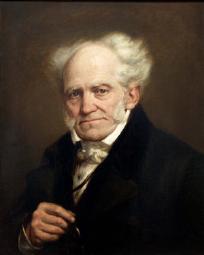
File: 1593303984381.jpg (24.72 KB, 262x406, 131:203, 9781608682256_p0_v4_s550x4….jpg) ImgOps iqdb

I found myself feeling a bit envious of her autistic daughter because the author fought so hard to get her the help she needed when it became clear how different she was from the other kids in school.
>Grace, Under Pressure: A succubus with Asperger's and Her Marathon Mom
By the time her daughter Grace was diagnosed with Asperger’s syndrome, Sophie Walker’s life had unraveled. Her career was in disarray. She couldn’t sleep. She felt hopeless and useless in her role as a mother. Sophie began to seek the things Grace needed — everything from advocacy for her educational rights and protection from bullying to help with homework and making friends. When Sophie realized she was neglecting her own health and well-being, she decided to train for the London Marathon to raise awareness of Asperger’s and to build the mental and physical resilience she needed to support her daughter. Through running, Sophie ultimately found the strength to battle for Grace’s education, happiness, and future, as well as the inner fortitude to overcome her own frustration and depression. In this book, she documents her and her daughter’s trials and triumphs, offering real-world inspiration for parents and athletes alike.
File: 1593304685338.png (52.85 KB, 299x168, 299:168, ClipboardImage.png) ImgOps iqdb

IIRC her progressive, feminist views aren't discussed in the book. In fact, I only found out about her politics when I googled her after finishing the book.
These sorts of autism memoirs have caught my eye frequently over the years. I've always been more interested in the scientific/academic literature though, in terms of what I'm willing to spend time on.
Have you read this book?:
https://www.goodreads.com/book/show/25937912-love-that-boy
This one caught my attention recently. It seems very similar to the one you just posted about.
I have not read that book, wizzie. I just got done reading some Amazon user reviews of it. I think I'll read it next time I'm in the mood for something on ASD. Thanks.
I imagine that the 'parental expectations' theme would be relatable to many people here.
File: 1593647673072.png (1.18 MB, 1422x800, 711:400, 9394849c-1a99-4c68-a459-97….png) ImgOps iqdb

>Hidden Valley Road: Inside the Mind of an American Family
The heartrending story of a midcentury American family with twelve children, six of them diagnosed with schizophrenia, that became science's great hope in the quest to understand the disease.
Don and Mimi Galvin seemed to be living the American dream. After World War II, Don's work with the Air Force brought them to Colorado, where their twelve children perfectly spanned the baby boom: the oldest born in 1945, the youngest in 1965. In those years, there was an established script for a family like the Galvins–aspiration, hard work, upward mobility, domestic harmony–and they worked hard to play their parts. But behind the scenes was a different story: psychological breakdown, sudden shocking violence, hidden abuse. By the mid-1970s, six of the ten Galvin boys, one after another, were diagnosed as schizophrenic. How could all this happen to one family?
What took place inside the house on Hidden Valley Road was so extraordinary that the Galvins became one of the first families to be studied by the National Institute of Mental Health. Their story offers a shadow history of the science of schizophrenia, from the era of institutionalization, lobotomy, and the schizophrenogenic mother to the search for genetic markers for the disease, always amid profound disagreements about the nature of the illness itself. And unbeknownst to the Galvins, samples of their DNA informed decades of genetic research that continues today, offering paths to treatment, prediction, and even eradication of the disease for future generations.
File: 1594405486076.jpg (9.88 KB, 261x400, 261:400, RunawayHorses.jpg) ImgOps iqdb
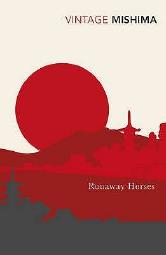
But the adult world appears in contradiction with this conception of life: the pettiness of daily life, the need to maintain the conveniences, all reduced to profit and results and so, lie and impurity are considered valid means. The adult world is represented by the father, a figure that constraints and limits. At the end, after the terrorist attack is thwarted, Isao still gets his redemption:
“The instant that the blade tore open his flesh, the bright disk of the sun soared up and exploded behind his eyelids.”
Another recurring theme in this book and in the whole tetralogy is buddhism and reincarnation but to be honest I don't get much of this.
File: 1594408533209.png (894.49 KB, 658x882, 47:63, Weyevgenyzamyatin.png) ImgOps iqdb
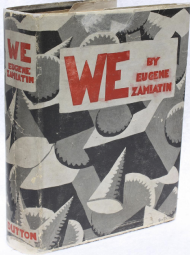
Basically a guy gets simped into letting a succubus seduce him into letting her and her beta orbiters use his rocket. Honestly the game was leading a normal happy, successful life until that succubus taunted him. Not for any feeling of love but just because he had access to the big rocket they were making. Other than the shitty plot the Benefactor seems woefully incompetent to just let all this happen. The state in 1984 was much more subversive than the Benefactor.
Eric Blair says Brave New World ripped him off. I could see what he means in that We has sex coupons and at the end people are given a lobotomy, but Brave New World was more unsettling because they deliberately created a hive world with a caste society but selectively retarding certain embryos to set them for their station in life.
What I do like about it is a lot of math imagery the writer uses. Unless you are familiar with calculus you won't understand have the shit he is saying. It is also impressive he wrote this in the 1920s.
I pirated maybe 98% of books I've read but almost all were in my native language - it's only recently that I feel confident to read English literature. So while finding native stuff is trivial to me English books are a different case.
https://b-ok.org/ for most stuff
http://gen.lib.rus.ec/ for textbooks
Failing those 2 #bookz IRC channel on undernet has some stuff those don't
File: 1594586963372.jpg (7 MB, 2250x2031, 750:677, 1cut.jpg) ImgOps iqdb

I'm going through the Arabian Nights right now and decided to be really caring about those imaginings, fostering it, trying to be precise about it. For example, if there's a description of a bedroom or a character, I'll almost stop to wait a clear image of it to appear in my mind. This kinda takes a long time compared to just reading something. You know how you can blow through reading fiction when you're just "cerebrally" understanding what's going on? Now that I'm doing this precise imagining thing, I realize how the formation of images are slow and clunky. Another thing that I noticed is how poor my images really are. Time and time again I realize really how much I have no idea how an Ifrit looks like, or a porter working in 10th century Bagdad moves, or how a person dressed in splendid sultan clothing would look like from behind while gazing at the sea from his palace window. Those are description from the books and I'm pretty sure I'm not doing a good job in visualizing those things.
The more I stop to observe the images my mind forms of places and people, the more unsatisfied I am. It's basically all shit. Now I'm doing quick image searches to improve my reference about those places. Another thing I noticed is how stereotypical and shallow my imaginings are. I'll give you a concrete example. Every time I read the word "vizir" in that book, no matter how well described his clothings are, his face, how he walks, etc, all my mind can conjure up and settle on is on Jafar, the evil Alladin's vizir character. It's intriguing and frustrating at the same time. The author is describing this completely different character and I catch glimpses of it, but as far as having a solid image about it, my brain immediately jumps to that cartoony Jafar and won't let it go to the point of being annoying.
Is this a thing? I can't be the first person to think about this, is there a name for this type of reading, or something.. I don't even know what I'm asking here.
I guess what I'm asking is how do you read fiction? Do you really stop to gaze at the scenes going on inside your mind's eye, or is it a more cerebral thing, where you really focus more on whatever machinations going on in the plot, having just fleeting imagery of it all? I hope I made myself clear, really hoping for some responses about this.
I tried to write something for the first time in a long while yesterday and was surprised at how difficult I found it. I used to be able to knock out a few thousand words in a session, with the right words just coming to me. Yesterday, I managed to squeeze out about 400 in a few hours and it was all garbage. I hope the brain rot is reversible, I didn't realise quite how bad it had gotten over the years.
All of that visualizing bullshittery is just for word fluff to pad out another book to sell
You're being memed into caring about filler
I think I didn't make myself clear, sorry.
Here's a TLDR version of >>54267 :
Do you take your time to enjoy and fully visualize the descriptions in fiction books, or are you satisfied to read it quickly, without taking an effort to imagine what's been described?
I ask because recently I've been really taking my time to fully imagine and create images in my mind from literary descriptions and I got curious how much people do that when they're reading fiction themselves.
https://www.globalgreyebooks.com/index.html
just putting these links here in case anyone wants to read from these libraries
https://www.amazon.com/Wizardrous-Proper-Journey-J-Hinsvark-ebook/dp/B08745D6BP
Warning, if you are currently logged into amazon clicking this link will let the amazon MIB niggers add you to their "browses wizchan.org" list in their customer info database.
So what, what can they do to me that my well-hidden silicone phallus has not already done?
File: 1594947638887.png (934.37 KB, 603x600, 201:200, ClipboardImage.png) ImgOps iqdb

haha, yes, what a funny and amazing story. can't recommend wizardrous enough fellow wizards. it is free!
File: 1595397858927.jpg (35.43 KB, 284x475, 284:475, 9314350.jpg) ImgOps iqdb
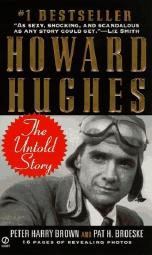
This was okay, but way too much space was devoted to his sex life. He was really shady, almost sociopathic, when it came to succubi (he'd do things like propose marriage to get a succubus to have sex then never call her again). The authors argue his OCD was behind his compulsive womanizing. There was very little real info about his CIA involvement or his business dealings. The authors seemed bored by this part of his life and always digressed back to whichever succubus he was seeing at the time. I did like the last chapters that detail his final years as a mentally ill recluse. Very bleak and wizardly in a way.
Most of the libraries here are still closed due to the Coronavirus, so this is the only Hughes bio I could find.
File: 1595434825405.jpg (10.13 KB, 274x400, 137:200, Infinite_Resignation.jpg) ImgOps iqdb
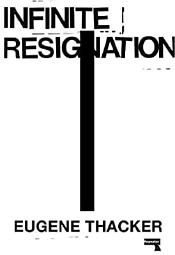
I'm reading pic related at the moment, which is split into two parts; the latter part is an overview of various pessimistic philosophers, with Schopenhauer being a big focus. It's an interesting insight into Schopenhauer. I'm also about to continue to reading In The Presence of Schopenhauer by Michel Houellebecq.
File: 1595537516903.jpg (47.74 KB, 333x500, 333:500, 51er7mbWBkL.jpg) ImgOps iqdb

>>>/games/47243
>Now I don't play anymore, I became a yoga and kitesurf instructor for a tourist resort which pay me well.
Godlike genetics I guess
it's okay if he's a virgin I guess.
:^)
[Last 50 Posts]



